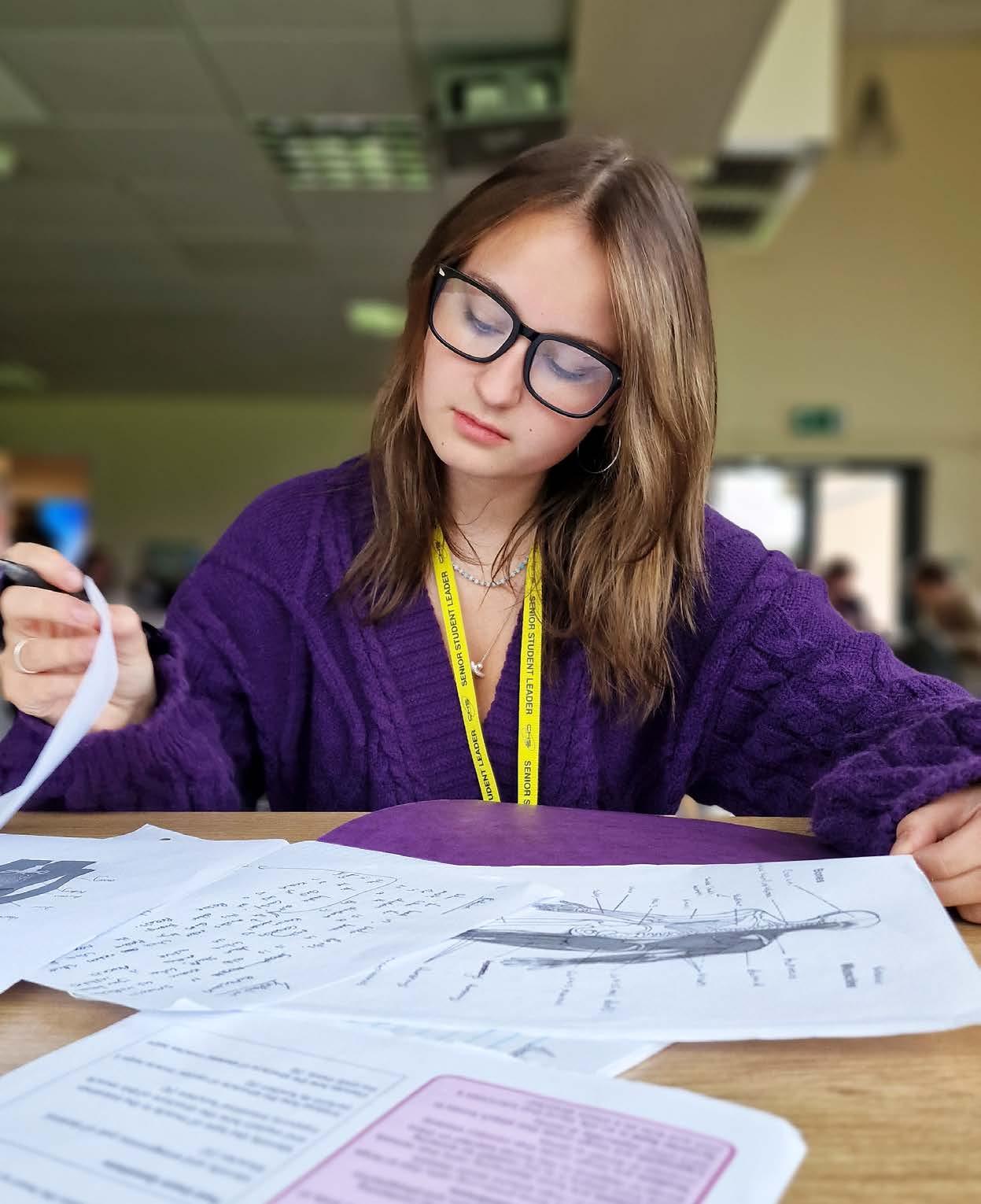


in the Pursuit of Excellence’ COURSE DETAILS 2024-25
‘Together


www .congletonhigh.com CONTENTS CHOOSING YOUR NEW COURSE 3 MAKING YOUR DECISION....................................................................................................................................4 APPLIED SCIENCE .................................................................................................................................................. 6 ART & DESIGN ........................................................................................................................................................ 8 ART & DESIGN (Level 3 Cambridge Technical Diploma) ............................................................................. 10 BIOLOGY................................................................................................................................................................. 12 BTEC BUSINESS.................................................................................................................................................... 14 CHEMISTRY ........................................................................................................................................................... 16 BTEC CHILDREN’S PLAY, LEARNING AND DEVELOPMENT 18 COMPUTER SCIENCE ......................................................................................................................................... 20 CRIMINOLOGY ......................................................................................................................................................22 DRAMA ................................................................................................................................................................... 24 ENGINEERING ...................................................................................................................................................... 26 ENGLISH GCSE RE-SIT ....................................................................................................................................... 28 ENGLISH LANGUAGE ......................................................................................................................................... 29 ENGLISH LITERATURE ........................................................................................................................................ 31 GEOGRAPHY 33 BTEC HEALTH & SOCIAL CARE (Technical Level 3 Certificate) .................................................................. 35 HISTORY .................................................................................................................................................................37 INFORMATION TECHNOLOGY (BTEC Level 3 National Extended Cert) ........................................................... 39 MATHEMATICS ...................................................................................................................................................... 41 MATHEMATICS - FURTHER MATHEMATICS ................................................................................................ 43 MATHEMATICS GCSE RE-SIT ........................................................................................................................... 45 MEDIA (Digital) (Level 3 Cambridge Technical Extended Certificate) ....................................................... 46 MUSIC (BTEC Level 3 National Extended Certificate) 48 PHOTOGRAPHY (Digital) (Lens and Light Based Media) ............................................................................ 50 PHYSICS ................................................................................................................................................................ 52 POLITICS ................................................................................................................................................................ 54 PRODUCT DESIGN .............................................................................................................................................. 56 PSYCHOLOGY ...................................................................................................................................................... 58 PUBLIC SERVICES (NCFE Level 3 Certificate for Entry to the Uniformed Public Services) ................ 60 SOCIOLOGY .......................................................................................................................................................... 62 SPANISH 64 SPORT (BTEC Level 3 Foundation Diploma) .................................................................................................. 66

CHOOSING YOUR NEW COURSES
To help you find the right courses for you our subjects are organised into a number of Progression Pathways. To reflect career areas, our pathways aim to help you see which courses typically work well together. However, don’t feel restricted – you can choose courses from any pathway if they work within our option blocks. As well as A Levels, we offer a range of practical and vocational courses.
Our curriculum provides real flexibility when you choose your options so you might decide to study A Levels, vocational courses or a mixture of both.
Most students will opt for three A Level or vocational subjects. A small number of students choose to study four subjects where others might choose to focus on just two A Level subjects, combining courses with a work experience placement. With a strong Sixth Form offer designed to enable our students to thrive, there really is something to suit a variety of pathways.
You do need to be aware that if you do not achieve at least a Grade 4 in GCSE Mathematics or English, you will continue to study these.
Creative and Performing Arts
BTEC Music
A Level Drama
A Level Art and Design
Art and Design (Cambridge Technical –vocational)
A Level Photography
Humanities, Languages and Literature
A Level History
A Level Politics
A Level English Language
A Level English Literature
A Level Geography
A Level Spanish
Education, Society, Sport and Health Science Technology, Engineering and Maths
BTEC Health and Social Care (vocational)
A Level Sociology Applied Criminology
A Level Psychology
BTEC Sport (vocational)
NCFE Public Services (vocational)
Applied Science
Children’s Play, Learning and Development
A Level Maths
A Level Further Maths
A Level Engineering
A Level Biology
A Level Physics
A Level Computer Science
A Level Chemistry
A Level Product Design
Business, Media and ICT
BTEC Business
Digital Media (Cambridge Technicalvocational)
BTEC ICT (vocational)

www .congletonhigh.com Page 3

ENTRY REQUIREMENTS
To study A Level courses, students need to achieve at least five Grade 6s as a basic entry level. However, if students wish to study one of the three A Level sciences, they must achieve a minimum of a GCSE grade 7 in the science they wish to study. If a student wishes to study A Level Maths, they must achieve a GCSE grade 7 in Maths and to study Further Maths, students must achieve a minimum of a Grade 8 in GCSE Maths. Individual circumstances may be considered when students have performed well in talent subjects e.g. Art, Drama, Photography.
To study vocational courses students must achieve two grade 5s at and three Grade 4s at GCSE as a basic entry level. Where students have studied vocational courses in KS4 they must achieve a Level 2 Merit or above to count within the five qualifications required. Each qualification may have some specific requirements, so please read this booklet carefully before you make your choices.
Individual circumstances may be considered when students have performed well in talent subjects e.g. ICT, Media, Art, Sport. All applications will be considered on an individual basis, and we reserve the right to make an exception in exceptional cases.
MAKING YOUR DECISION
Before making a decision, ask yourself these questions:
1. Am I interested enough in this subject to study it for so many periods a week for the next year or two years? A minimum of 9 hours is time-tabled for each subject per fortnight plus homework, which is a long time to be spending on a subject in which you personally may have little real interest.
2. Do I know enough about what the subject involves? Staff have written about their subjects but cannot say everything in one article. Talk to them at school or email them and ask any questions that you have. Ask them for any further information you may want. The contact details for each subject are enclosed.
3. Have I the ability to make a success of the subject? Prior qualifications recommended for each subject are given. Talk to your teachers about your chances of succeeding in their subject in the Sixth Form.
4. Is my combination of subjects sensible? It is important that the subjects you have chosen have some pattern to them and while straightforward preference is a significant factor, it is important for you to consider what you wish to do following A Levels when making choices about your courses Post-16 – research the entry requirements for any university courses or careers that you have in mind. The link below is useful in helping you make informed choices, particularly if you are considering Russell Group universities: https://www.informedchoices.ac.uk
5. The expert advice of a Careers specialist is useful: we are talking about your future. You are urged to make an appointment to discuss your plans with our Careers Adviser.
We have included the details of the courses that we hope to offer in September 2024 in this document.
• Applicants should note that we reserve the right to withdraw courses should they not attract sufficient numbers.
• Each subject has been allocated to an option block on the timetable; you can only opt for one subject from each option block – the option blocks are opposite:

www .congletonhigh.com Page 4

Further Maths Maths CTEC Art and Design Physics Computer Science
BTEC Business Applied Criminology Biology Applied Criminology Psychology
BTEC Health and Social Care CTEC Digital Media BTEC ICT Product Design English Literature
History BTEC Music Psychology History Photography
English Language Art Sociology Drama Geography
Engineering Applied Science BTEC Sport Maths NCFE Public Services
Sociology Spanish Politics Product Design Chemistry
Children’s Play, Learning and Development
To apply to our Sixth Form for September 2024, please scan the QR code below which will take you to our online Application Form.
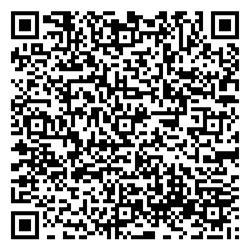

www .congletonhigh.com Page 5
Block A
Block B
Block C
Block D
Block E

APPLIED SCIENCE
Examination Board: AQA
Why take Applied Science?
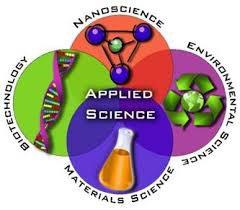
Do you question the way things work? Are you always wondering why? Then Applied Science is the course for you. New to CHS, Applied Science is an excellent course for those who are interested in how things work and want to take science further. Since it encompasses all disciplines of science (Biology, Chemistry and Physics) there is a huge range of topics to study and many areas that Applied Science can lead into. Science is all around us so this course can help support almost any field of work.
Applied Science will allow you to achieve a high level of practical laboratory skills from which the theory is then drawn. It can lead onto a university career or help support further vocational courses and apprenticeships in a wide variety of fields. The content is up-to-date allowing students to apply their knowledge to the world around them and allows students to develop a variety of skills for future employment; these include written assignments, practical knowledge and understanding, numeracy and ICT work. If you enjoy a hands-on approach to science then this is the course for you!
What is the course content?
The course includes a wide range of topics from each of the separate disciplines of Biology, Chemistry and Physics, reinforcing and extending the work done at GCSE.
Applied Science is essentially a practical subject and you will have many opportunities to experience a wide range of processes and techniques from across the spectrum of Science.
What sort of teaching, learning and assessment should I expect?
If you have enjoyed Science at GCSE you will have your interest further developed at A Level. Learning experiences will include independent research, experiments, demonstrations, discussion, problem solving, presentations, application of knowledge and numerical data handling and presentation.
Assessment will consist of both a course work and examinations over the two-year course.

www .congletonhigh.com Page 6

APPLIED SCIENCE
What skills does Applied Science develop?
Students will develop essential knowledge and understanding of different areas of Science and how they can be applied in a real world context. They will develop and demonstrate a deep appreciation of the skills, knowledge and understanding of scientific methods.
Practical skills and techniques will be particularly developed throughout the course. Analytical skills, problem solving, creative thinking, application of knowledge, writing concise answers and learning numerical methods are developed by this course.
Students will also come to understand how society makes decisions about scientific issues and how the sciences contribute to the continued development of the modern world.
What courses or work-based training can I combine with my Applied Science course?
This course can be taken in conjunction with other academic or vocational courses at Congleton High School Sixth Form. Applied Science provides an understanding of the fundamentals in biological, chemical and physical sciences and as such will work well alongside many other subjects including Engineering, Information Technology/Computer Science, Product Design, Public Services, Psychology, P.E., Economics, Sociology and Geography. The skills developed during the course and the demand to think both analytically and creatively make Applied Science fit in well with many other subjects.
What careers or further studies could Applied Science lead to?
Applied Science can lead onto a number of different career paths and future study. It can allow access to many university courses as well as skilled work and apprenticeships in many different sectors, Post 18. These sectors include Engineering, Zoology, Veterinary Nurse, Nursing, Environmental Science, Laboratory Science, Agriculture, Education, Biomedical Science, Forensic Science, Food and Nutrition, Physiology, Sports Studies, Electronics, Aviation, to name just a few.
The skills and knowledge that students will acquire throughout the Applied Science course will help them enter a skilled profession with job security and good wages. Many of the skills are transferable and will help students to become independent adults with the tools needed to succeed in the work place.
Specific entry requirements for this course:
We recommend that you have at least Grade 55 in GCSE Combined Science or a Grade 5 in each of Biology, Chemistry and Physics if studied separately at GCSE. Due to the demands of the course, students are also required to have a grade 54 in GCSE Maths and English.
For further information please contact Miss K Jones (Curriculum Team Leader)

www .congletonhigh.com Page 7

ART AND DESIGN
Examination Board: AQA
Why take Art & Design?

Would you like to develop a personal way of working, to experiment with new techniques and to fulfil your creative potential? If you enjoyed GCSE Art and Design this is an opportunity to carry on with your artwork and develop your skills further by taking A Level Art and Design.
You will be encouraged through the provision of a supportive environment that is sensitive to your individual needs, and you will be helped to develop your own personal artistic style through negotiated themed projects.
If this sounds appealing to you then A Level Art and Design could be the course for you.
What is the course content?
The course is similar to GCSE but requires a greater depth, commitment and understanding. It is possible to include aspects of Art and Design that reflect particular interests and strengths such as 3D, Photography, Graphics and Textiles. Work will be in response to a given or negotiated starting point. The course is made up of two units in Year 12 and a further two units in Year 13.
Year 12
In Year 12 for the first term and a half, you will be building a range of experiments to further your skills and develop yourself as an artist. This will include new techniques, media and experimenting with working on larger scale pieces. Towards the middle of the spring term you will start to negotiate your main coursework project for Component One -Personal Investigation which will run until January in Year 13.
Year 13
In Year 13, continuing on from work started in Year 12, you will:
• Continue to study for Component One – Personal Investigation (a practical annotated assignment with 3000-word conclusion)
• Complete Component Two (an external assignment with a 15 hour timed piece under examination conditions)
What sort of teaching, learning and assessment should I expect?
• Independent research
• Practical, theoretical and technical tuition
• Individual support, guidance and feedback on progress
• Lectures and discussion
• Trips and visits to galleries

www .congletonhigh.com Page 8

ART AND DESIGN
What skills does Art & Design develop?
The course will help you to plan and organise effectively. Researching, analytical skills and problemsolving techniques are integral to the course. You will be developing your technical skills and using verbal and written communication and ICT skills. High quality presentation is central to all Art and Design courses.
Art develops your creativity and problem-solving skills which are desired by future employers in any industry. You will also be learning new techniques that are relevant to your theme or chosen way of working.
What courses or work-based training can I combine with my Art & Design course?
This course can be taken in conjunction with other academic or vocational courses at Congleton High School Sixth Form. Suggested subjects might include Media Studies, DT, English, History, Psychology, Geography, ICT, Physics and Chemistry. Sciences are useful for Photography, Film, Architecture and Product Design career progression.
What careers or further studies could Art & Design lead to?
There are many careers in design that are accessed through an Art and Design degree course. You will be given the opportunity to see the wide choice on offer at the UCAS Art and Design Course Fair at the GMEX Centre, Manchester in November. In addition, the qualification can be used to support an application to university to study a wide range of other subjects, outside Art and Design.
Former Art and Design students have gone on to university to study Architecture, Surface Pattern Design, Fashion and Textiles, Fashion Management and Marketing, Graphic Design, Photography, Footwear, History of Art, Film and Media, Illustration, Jewellery Design, Product Design and Ceramics and Glass.
Fashion Management and Marketing is a useful stepping-stone to a career as a ‘Buyer’ for a large fashion retail company and can lead to senior management positions via this route. Film and Media provides opportunities in video game production and animation. Product Design can lead to careers in concept design for the car industry.
Some students who do not wish to follow an Art and Design career have used their A Level in Art to help them secure places on courses as diverse as Accountancy, English, Geology, Geography, Biochemistry, Primary School teaching and other non-Art degree courses
Specific entry requirements for this course:
It is recommended that you have GCSE Grade 5 Art and Design.
For further information please contact Mrs H Vale, Curriculum Team Leader, Art.

www .congletonhigh.com Page 9

ART & DESIGN
(Level 3 Cambridge Technical Diploma)
Examination Board: OCR
Why take Art & Design?

This qualification will provide you with a further understanding of Art, Design and Craft. You will have the opportunity to gain practical and creative skills, working with 2D and 3D materials, processes and techniques of your choice. This course could allow you to follow a range of artistic interests including Painting, Drawing, Printing, Sculpture and Textiles. If you enjoyed GCSE Art and Design this is an opportunity to carry on with your artwork and develop your Technical Skills further by taking a Cambridge Technical Diploma in Art and Design. You will be encouraged through the provision of a supportive environment that is sensitive to your individual needs and will be helped to develop your own personal artistic skills through a range of design based units.
If experimenting with a range of artistic approaches using different media, techniques and processes, while exploring different Artists’, Designers’ and Sculptors’ work to support your ideas sounds appealing, then this could be the course for you.
What is the course content?
Year 12 – You will need to produce one Mandatory Unit - Art and Design in Context, plus two other Units.
Year 13 – You will need to produce three more Optional Units which can be negotiated to reflect your personal strengths and interests in either Fine Art, Ceramics or Textiles. There is no examination required for this course.
What sort of teaching, learning and assessment should I expect?
• Independent research
• Practical, theoretical and technical tuition
• Individual support, guidance and feedback on progress
• Mini Lectures, discussion and a work shop environment
• Trips and visits to galleries
• The course is assessed in school and externally moderated by OCR.

www .congletonhigh.com Page 10

ART AND DESIGN
What skills does Art & Design develop?
The course will help you plan and organise effectively. Promoting excellent research, analytical skills and problem-solving techniques is integral to the course, working through the design process to realise your intentions. You will be developing your technical skills and use verbal and written communication and ICT skills. High quality presentation is central to all Art and Design courses. Art develops your creativity, imagination, reasoning, analytical and problem-solving skills which are desired by future employers in any industry. You will also be learning new techniques that are relevant to your theme or chosen way of working.
What courses or work-based training can I combine with my Art & Design course?
This course can be taken in conjunction with other vocational or academic courses at Congleton High School Sixth Form. Suggested subjects might include Media Studies, Photography, DT, English, History, Psychology, Geography, ICT, Physics and Chemistry. Art with Sciences and Maths are useful for careers in Photography, Film, Architecture and Engineering. Art can be combined with any subject area for any Design based career progression. Students taking Art have also progressed onto Further Education courses in Geography, Accountancy, Psychology, Primary Teaching and into The Forces.
What careers or further studies could Art & Design lead to?
There are many careers in design that are accessed through an Art and Design degree course. Students are given the opportunity to see the wide choice on offer at the UCAS Art and Design Course Fair at the GMEX Centre, Manchester in November.
In addition, the qualification can be used to support an application to university to study a wide range of other subjects outside Art and Design.
Former Art and Design students have gone on to university to study Architecture, Accountancy, Psychology, Geography, English, Surface Pattern design, Fashion and Textiles, Fashion Management and Marketing, Graphic Design, Photography, Footwear, History of Art, Film and Media, Illustration, Jewellery Design, Product Design, Ceramics and Glass.
Fashion Management and Marketing is a useful stepping-stone to a career as a ‘Buyer’ for a large fashion retail company and can lead to senior management positions via this route. Film and Media provides opportunities in video game production and animation. Product Design can lead to careers in concept design for the car industry.
Some students who do not wish to follow an Art and Design career could use their Cambridge Technical Diploma in Art to help them secure employment or an apprenticeship.
Specific entry requirements for this course:
It is recommended that you have GCSE Grade 5 in Art and Design. However, all applicants will be considered on an individual basis.
For further information please contact Mrs H Vale, Curriculum Team Leader, Art.

www .congletonhigh.com Page 11

BIOLOGY
Examination Board: OCR
Why take Biology?

The most amazing thing in the Universe is the existence of life! So, what could be more interesting than the study of living things and what makes them tick? Studying Biology will allow you to understand what organisms are made of and how cells work together and carry out the living processes of respiration, photosynthesis, excretion, digestion, transport, inheritance and reproduction. You will learn the scientific basis of healthy lifestyles, human disease, growth, development, how organisms interact in the environment and how they evolve to produce new species.
Biology is a fascinating and challenging subject that should appeal to those students with an interest in the scientific study of living things. Many people are fascinated by the human body and much of the course involves the study of humans as organisms at many levels of organisation. The course also involves studying organisms such as viruses and bacteria as well as plants and animals and how they function and interact. ‘New Biology’ topics such as DNA structure and function, genetic engineering and biotechnology also form part of the study of Biology.
What is the course content?
You will develop your practical skills and you will learn about:
• Foundations in Biology
• Exchange and transport
• Biodiversity, evolution and disease
• Communication, homeostasis and energy
• Genetics, evolution and ecosystems
What sort of teaching, learning and assessment should I expect?
Teaching and learning is very varied in Biology lessons and will include discussions, lectures, practical work, fieldwork, independent research, group work and student presentations. The course covers a wide variety of topics that will prepare you for any Biological Sciences course at University. In previous years, students have taken part in activities at Keele University, Chester Zoo and the Peak District.
There are formal written examinations at the end of the course as well as ongoing practical skills assessment, where students must carry out practical work, collect data and process the data.

www .congletonhigh.com Page 12

BIOLOGY
What skills does Biology develop?
Biology will develop your analytical skills as well as your ability to assimilate information and use your understanding to explain biological phenomena and concepts. Your technical and practical skills will also develop, as will your ability to analyse and evaluate experimental data and procedures. The key skills of communication, use of number, ICT, independent work, problem solving and working with others form an important part of the study of Biology.
What courses or work-based training can I combine with my Biology course?
This course can be taken in conjunction with other academic or vocational courses at Congleton High School Sixth Form. Biology goes particularly well with Chemistry, PE, Psychology and Geography, although many students combine Biology as their ‘Science A Level’ with Modern Languages, English, Drama, IT, Sociology or Maths. If you wish to study a Biological Science at University you should really choose A Level Chemistry along with Biology.
What careers or further studies could Biology lead to?
A Level Biology forms a good basis for the study of many degrees at University including Biology, Biotechnology, Biochemistry, Microbiology, Medicine, Molecular Biology, Genetics, Zoology, Botany, Environmental Sciences, Pharmacology, Physiotherapy and Veterinary Science, Food Science etc.
Studying Biology at A Level would also be useful as a general qualification to support an application to study other unrelated subjects.
A qualification in Biology is a useful stepping stone to a career in Biological Research in industry, Universities or research laboratories, Medicine, Nursing, Public Health, Animal Care, Horticulture, Teaching and many other areas.
For further information please contact: Mr G Thomas, Deputy Curriculum Team Leader or Miss K Jones, Curriculum Team Leader

www .congletonhigh.com Page 13

BTEC LEVEL 3 EXTENDED CERTIFICATE IN BUSINESS
Examination Board: Pearson

The content of this qualification has been developed in consultation with academics to ensure that it supports progression to higher education. Employers and professional bodies have been involved and consulted in order to confirm that the content is appropriate and consistent with current practice for learners planning to enter employment directly in the business sector.
Why take Business?
You don’t have to aspire be the next Alan Sugar or Richard Branson to take Business! This subject is for anyone – we all come into contact with businesses every day of our lives and this subject will give you a greater insight to the workings of business and industry. It is a dynamic combination of economics, accountancy, marketing, administration and law. This course is for students who are interested in learning about the business sector alongside other fields of study, with a view to progressing to a wide range of higher education courses, not necessarily in business-related subjects.
What is the course content?
The BTEC is equivalent in size to one A Level. There are 4 units of which 3 are mandatory and 2 are moderated externally.
Mandatory Units include:
· Exploring Business – Internally assessed
· Developing a Marketing Campaign – Externally assessed
· Personal and Business Finance – Externally assessed
The optional units have been designed to support choices in progression to business courses in higher education and to link with relevant occupational areas such as Human Resources, Accounting, Marketing and Law. Optional Units include:
· Recruitment and Selection Process
· Investigating Customer Service
· Market Research
· The English Legal System 60 Optional Internal
· Work Experience in Business

www .congletonhigh.com Page 14

BUSINESS
What sort of teaching, learning and assessment should I expect?
Teaching will involve a variety of methods including group work, class discussions and individual research. As the world of business is constantly changing, you will need to have an enquiring mind and be able to keep pace with current affairs through the use of newspapers and the internet. Studying A Level Business involves finding solutions to business problems and you may be required to present your findings in the form of presentations and reports. This course includes extensive use of numeracy and literacy skills, and students can expect to have regular assessments in order to show their progress.
What skills does Business develop?
The use of Business scenarios will enable you to recognise, define, analyse and evaluate problems in the world of business both in the domestic and international markets and be able to communicate these ideas and solutions to a variety of audiences. You will also need to use your ICT skills in order to research and present your ideas. This subject will give you an understanding of the commercial world around you.
What courses or work-based training can I combine with my Business course?
This course can be taken in conjunction with other academic or vocational courses at Congleton High School Sixth Form. Business combines well with a number of subjects but is also frequently combined with subjects such as, Law, Engineering, Modern Foreign Languages, Information Technology, Mathematics, Psychology and Humanities subjects.
What careers or further studies could Business lead to?
It will provide you with a broad based preparation for careers in management, accountancy, banking, marketing, retail or simply running your own business!
Specific Entry Requirements for this course:
It is highly recommended that applicants should have at least a Grade 5 in Mathematics and English. However, applications will be considered on an individual basis
For further information please contact Ms C Morris, Leader of Business.

www .congletonhigh.com Page 15

CHEMISTRY
Examination Board: OCR
Why take Chemistry?

Chemistry is a fascinating subject which provides us with an understanding of how the world around us works! We can create new substances to fight disease, to feed the world’s population, to solve the energy crisis, to combat climate change, to provide new materials to improve the quality of life and potentially, to explain life itself.
It is the study of the nature of matter - how and why things are and how we can use them. You will find out about baby lotion, medicines, future fuels for transport, pH control in blood, analysing substances, environmental chemistry and solving the world’s energy problems. If you enjoy thinking, problem solving, practical activities and finding out about the universe, this course will suit you!
What is the course content?
The course includes a wide range of topics relating Chemistry to the world around us, extending the work done at GCSE, studying new topics and answering some fundamental questions.
Chemistry is essentially a practical subject and you will have many opportunities to experience a wide range of processes and techniques including quantitative analysis and synthesis of compounds.
What sort of teaching, learning and assessment should I expect?
If you have enjoyed Chemistry at GCSE you will have your interest further developed at A Level. Learning experiences will include independent research, experiments, demonstrations, discussion, problem solving, presentations, application of knowledge, numerical data handling and presentation.
Assessment will consist of examinations at the end of the two year course. There is also a practical endorsement assessment for this course which does not form part of the A Level qualification.

www .congletonhigh.com Page 16

CHEMISTRY
What skills does Chemistry develop?
Students will develop essential knowledge and understanding of different areas of the subject and how they relate to each other. They will develop and demonstrate a deep appreciation of the skills, knowledge and understanding of scientific methods.
Practical skills and techniques will be developed throughout the course. Analytical skills, problem solving, creative thinking, application of knowledge, writing concise answers and learning numerical methods are particularly developed by this course.
Students will also come to understand how society makes decisions about scientific issues and how the sciences contribute to success in a 21st Century society.
What courses or work-based training can I combine with my Chemistry course?
This course can be taken in conjunction with other academic or vocational courses at Congleton High School Sixth Form. Chemistry provides an understanding fundamental to biological and physical sciences as well as Geography and Earth Science. The skills developed during the course and the demand to think both analytically and creatively make Chemistry fit in well with many other subjects. Former students have combined Chemistry with a variety of subjects including Psychology, Biology, Physics, Mathematics, P.E., History, Geography, Languages and English.
What careers or further studies could Chemistry lead to?
A high proportion of our past students have gone on to study Chemistry at university. There is a wide range of university courses and careers where Chemistry is essential, such as Veterinary Science, Medicine, Pharmacy, Pharmacology, Geology, Materials Science, Forensic Science, Chemical Engineering, Nutrition, Environmental Science, Toxicology, Molecular Biology, Medical Biology and Biochemistry.
It can also form a useful A Level for further studies in Biology or Physics, Physiotherapy, Astronomy, Law, Sports Science, Geology, Nursing, Midwifery, Radiology, Geography and Accountancy. It is a facilitating subject, as recognised by Russell Group Universities; it is a respected, academically rigorous subject.
For further information please contact Miss K Jones (Curriculum Team Leader), or Mrs C Finch (Assistant Curriculum Team Leader)

www .congletonhigh.com Page 17

CHILDREN’S PLAY, LEARNING AND DEVELOPMENT
Pearson BTEC Level 3
National Extended Certificate
Examination Board: Pearson

Why take Children’s Play, Learning and Development?
This course is for anyone who wants to develop and sustain an interest in Childcare and Education, Early Years Education in primary schools and issues affecting the Early Years sector. You will develop knowledge and understanding of how children develop, the development of literacy and numeracy skills, and the importance of keeping children safe. You will build upon your own skills of research, evaluation and problem solving. You will develop into an effective independent learner. This is a course for anyone who has an interest in working within the caring profession. You will take Children’s Play, Learning and Development if you love children and have a desire to care.
What is the course content?
The course is an BTEC Level 3 National Extended Certificate in Children’s Play, Learning and Development. The units of work that you would cover in this course include:
External Assessed (Exam): Unit 1 – Children’s Development Unit 2 – Development of Children’s Communication, Literacy and Numeracy Skills
Internally Assessed (Coursework): Unit 3 – Play and Learning Unit 5 – Keeping Children Safe
What sort of teaching, learning and assessment should I expect?
In order to achieve the BTEC Level 3 National Extended Certificate in Children’s Play, Learning and Development, learners must achieve a Pass grade in all internally assessed units, and at least a near pass on externally assessed units. Work experience isn’t mandatory; however, we strongly recommend you complete work experience alongside your studies.
What skills does Children’s Play, Learning and Development develop?
This course will enable you to become an independent learner. You will develop research skills, you will be able to question objectively, analyse, discuss, and formulate alternative approaches to the delivery of a variety of caring services. You will develop an understanding of development and how children’s needs can best be met.

www .congletonhigh.com Page 18

Children’s Play, Learning and Development
What courses or work-based training can I combine with my Children’s Play, Learning and Development course?
This course can be taken in conjunction with other vocational or academic courses at Congleton High School Sixth Form. Children’s Play, Learning and Development fits with a variety of subjects particularly Psychology, Sociology, Biology, English and BTEC Sport. Similar skills will be required in all of these subjects.
What careers or further studies could Children’s Play, Learning and Development lead to?
The course aims to provide learners with an in-depth knowledge of core subject areas in Children’s Play, Learning and Development to support progression into Higher Education, the workplace or further learning in related subject areas at Level 4 and above. It therefore provides an excellent foundation for entry into any of the caring professions including Childcare Practitioner, Early Years Education (Teaching) and any type of caring work. It can also take you into Social Work, Midwifery, and other university courses such as Social Studies, Psychology and higher-level Education Studies. You will also develop study skills which will equip you for further study on any university course.
What qualifications are recommended to study this course?
It is strongly recommended that to study a Children’s Play, Learning and Development course you have at least two GCSEs at grade 5 (including English) and three grade 4s at GCSE. You do not need to have studied Child Development in KS4. However, all applications will be considered on an individual basis.
Specific Entry Requirements for this course:
It is strongly recommended that to study a Children’s Play, Learning and Development course you should have at least two GCSEs at Grade 5 (including English) and three Grade 4s at GCSE.
A DBS check will need to be completed prior to going on work placement and must be paid for by the learner.
For further information please contact Mrs J Airey, Social Sciences Curriculum Team Leader.

www .congletonhigh.com Page 19

COMPUTER SCIENCE

Examination Board: OCR
Why take Computer Science?
Computer Science will allow you to explore how the world works and how you are able to change it for the better. In every sector of the economy, Computer Scientists are in high demand. This area of study offers a variety of career paths from network engineers, hardware engineers and programmers through areas such as web design, app development and games development. The Computer Science A Level develops computational thinking that can be applied to many problems faced by modern organisations and provides an excellent pathway to university or vocational training.
What is the course content?
To achieve this A Level in Computer Science, you must complete three Mandatory Units:
• Computer Systems (2 ½ hr written exam, 40% of A-Level)
• Algorithms and Programming (2 ½ hr written exam, 40% of A-Level)
• Programming Project (20% of A-Level)
What sort of teaching, learning and assessment should I expect?
You will be taught the main skills you need to complete assessment tasks, but you will be expected to develop your skills to a much higher level independently. You will need to develop your programming skills throughout the course, as the A Level provides a significant step-up in complexity from GCSE. Assessment is a mixture of written examination and exam board set tasks. You will be set a range of different assessed tasks throughout the course which will develop your skills in preparation for the examinations.
What skills does Computer Science develop?
Students will develop problem-solving and computational thinking skills as well as the ability to analyse, appraise and make critical judgments about the use of computer systems. The Programming Project will require you to develop excellent project management skills. In addition they will also develop the interpersonal skills necessary for communicating with others.
What other courses or work-based training can I combine with my Computer Science course?
This course can be taken in conjunction with other academic or vocational courses at Congleton High School Sixth Form. Computer Science complements all A Level courses, especially Mathematics. The skills and knowledge developed on this course will be invaluable for all studies at this level.

www .congletonhigh.com Page 20

COMPUTER SCIENCE
What careers or further studies could Computer Science lead to?
The course could lead to a wide variety of careers in IT or Computing, depending on the specialist skills the students have developed. There is currently high demand for workers with Computer Science qualifications.
For further information please contact Mr Davis (jdavis@congletonhigh.com)

www .congletonhigh.com Page 21

CRIMINOLOGY (WJEC Applied Diploma in Criminology)
Examination Board:
Why choose Criminology?
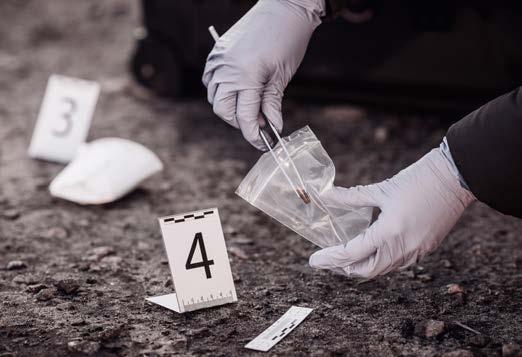
Studying Criminology will help you to develop your understanding of the theoretical explanations of why people commit crime. The course covers elements of psychological, biological, and sociological theories of crime, and you will learn how to apply these theories to analyse criminal situations. You will gain an understanding of the role of the criminal justice system and how a case moves from crime scene to court room. If you have an interest in Psychology, Sociology and Law, this course will help you to understand the way in which society defines crime and deviance and how crime is reported on, as well as the impact this has on the public’s perception of crime.
What is the course content?
To achieve the Level Three Applied Diploma in Criminology, you will study four units: Year 1
• Changing awareness of crime
• Criminological theory
Year 2
• Crime scene to court room
• Crime and punishment
What sort of teaching and learning should I expect?
You will do lots of group work, practical activities and discussions based around controversial theories that try to explain why a person commits a crime, the methods used to control crime and rehabilitate offenders. Visiting speakers from the Police Force and the Prison Service will be invited to speak to you. We will also run visits to local universities with crime scene investigation exhibits, local court rooms, and we visit Shrewsbury Prison. You will be assessed by a combination of internally assessed controlled assignments (Units 1 and 3) and externally set and marked assessments (Units 2 and 4).
What skills does Criminology develop?
The course allows you to develop your knowledge of the reasons as to why people commit crime and those who work within the criminal justice system, including their roles and responsibilities. You will focus on the skills that working in criminal justice system or rehabilitation services requires, such as team-working, communication, taking responsibility for your own performance and behaviour.

www .congletonhigh.com Page 22

CRIMINOLOGY
(WJEC Applied Diploma in Criminology)
What courses or work-based training can I combine with my Criminology course?
This course can be taken in conjunction with other academic or vocational courses at Congleton High School Sixth Form. WJEC Level 3 Applied Diploma in Criminology can be studied alongside Intermediate or Advanced Level courses. You might also decide to further your knowledge through volunteering or work experience as part of the Enrichment Programme.
What careers or further studies could Criminology lead to?
The WJEC Level 3 Applied Diploma in Criminology provides a good foundation to support access to higher education degree courses in Criminology, Criminology and Psychology, Law with Criminology (LLB) and Psychology and Sociology. Alternatively, the qualification allows learners to gain the required understanding and skills to be able to consider employment within some aspects of the criminal justice system, for example, the National Probation Service, the Courts and Tribunals Service or the National Offender Management Service.
Specific Entry Requirements for this course:
In addition to the entry requirements for vocational courses you should have 55 in English Literature and English Language.
For further information, please contact Mrs J Airey, Social Sciences Curriculum Team Leader.

www .congletonhigh.com Page 23

DRAMA AND PERFORMING ARTS (A
Level)
Examination Board: AQA
Why take Drama?
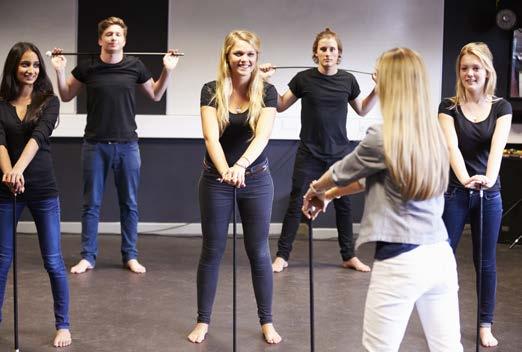
If you are curious about issues and ideas and have a creative instinct for communicating your views, then Drama is the ideal subject for you. You may be keen on acting, writing or on the visual and technical side of theatre and wish to develop your skills in some or all of these areas. Equally you will be interested in going to the theatre to see plays performed by different theatre companies. Drama A Level will appeal to students who are committed to broadening their experience of live theatre appreciation and text study.
What is the course content?
The course demands practical, creative and written communication skills in almost equal measure. You will extend your ability to create drama and theatre by exploring the work of existing practitioners and applying their ideas and methodologies. You will explore two plays in detail from the perspective of a performer /Director and Designer and will complete an external exam based on this knowledge. The course will involve seeing and responding to live theatre as well as creating and performing in it.
What sort of teaching, learning and assessment should I expect?
The course offers an introduction to the performing arts where learners will develop the appropriate skills and techniques in theatre performance. You will also gain skills as a director and designer learning how to articulate your ideas and opinions on paper. The qualification is designed to enable students to acquire a knowledge and understanding of drama and theatre as well as to develop their performing and analytical writing skills
Assessment
Component One: Drama and Theatre (40% Written Examination)
Two set texts and Live Theatre
Component Two: Creating Original Drama (30% Practical Examination)
Creating & performing a piece of drama in a group accompanied by written analysis of process
Component Three: Making Theatre (30% Practical Examination)
Practical exploration and interpretation a series of three scripted extracts

www .congletonhigh.com Page 24

DRAMA
What skills does Drama develop?
Drama develops many skills including confidence, empathy and creativity. It aims to extend your knowledge by enabling you to apply what you have learned in your own creative work. In devising theatre, you will alternate roles between being playwright, performer, designer and director. In performing theatre, you are required to demonstrate your knowledge, skills and understanding whilst applying the techniques of a specific practitioner. Through the study of the set texts, you are gaining analytical thinking skills.
What courses or work-based training can I combine with my Drama course?
This course can be taken in conjunction with other vocational or academic courses at Congleton High School Sixth Form. Drama can be taken with any combination of subjects but the most obvious combinations would include Music, Media Studies, English, Psychology, Sociology, History or a language such as Spanish or German.
Specific entry requirements for this couse:
A Grade 5 at Drama GCSE is desirable and a Grade 5 or above in GCSE English is essential. An active interest in performing and an enthusiasm for theatre and developing your skills is required.
For further information please contact Mrs K Mackreth, Curriculum Team Leader, Performing Arts

www .congletonhigh.com Page 25

ENGINEERING (Level 3, A-Level)
Examination Board: OCR
Why take Engineering?
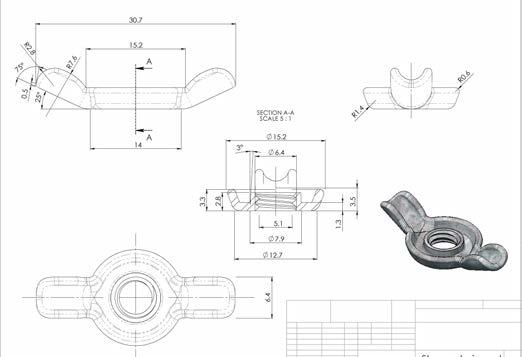
This qualification is designed for anyone who is interested in pursuing a career in the Engineering sector and who is interested in Engineering Technology. You will take a practical, Applied Engineering course, which gives you an introduction to the sector.
What is the course content?
The units you will study are:
1. 27% External Exam - Principles of Design Engineering
2. 23% External Exam - Problem Solving in Design Engineering.
3. 50% NEA coursework - Design and Manufacture Project
What sort of teaching, learning and assessment should I expect?
This qualification has a focus on a broad range of Engineering specialist areas. You will study Engineering Principles and Mathematics; Health and Safety; Teamwork and Interpreting and Creating Computer Aided Engineering; Drawings; Design and Manufacture of Products.
What skills does Engineering Design develop?
You will cover topics such as:
• The scientific principles used by engineers to identify the most suitable materials in an Engineering context
• Mechanical Engineering systems and components
• The process of Engineering design
• The relevance and role that manufacturing processes and systems have in the production of multiple components.
What other courses or work-based training can I combine with my Engineering course?
This course can be taken in conjunction with other vocational or academic courses at Congleton High School Sixth Form, such as English, Business, Art, ICT, and Product Design. Combining it with Physics and Mathematics would allow you to progress to Higher Education to study Engineering or other STEM-related programmes.

www .congletonhigh.com Page 26

ENGINEERING
What careers or further studies could Engineering lead to?
You can progress from this qualification to courses in Higher Education, as it meets admission requirements to many relevant courses in a variety of areas of the Engineering sector, for example: BEng (Hons) in Engineering; BEng (Hons) in Electronics Engineering; BSc (Hons) in Computer Science; BSc (Hons) in Mathematics. Alternatively, you might progress to job opportunities in the Engineering sector or to an Apprenticeship.
For further information please contact: Miss Kenny (Design Technology Curriculum Team Leader) or Mr Watkins (Teacher of Engineering) in the Design and Technology Curriculum Area.

www .congletonhigh.com Page 27

ENGLISH GCSE RE-SIT
Why take English GCSE re-sit?

All students who did not get at least a Grade 4 in GCSE English Language or Literature in Year 11, must continue to study towards an appropriate qualification.
Many jobs and training programmes, and all university courses, require applicants to have achieved at least a Grade 4 at GCSE in English Language. This course offers the opportunity to improve your literacy skills and your GCSE English Language grade. Most students will sit the November exam to gain exam experience and, hopefully, at least a 4. If students are successful in November, they do not need to continue to attend resit lessons.
What is the course content?
At the beginning of the year your teacher will review your GCSE grade, assess your needs and work with you to prepare you for the November re-sit to try and improve your grade. You will work to develop exam technique, the accuracy of your writing and your understanding of written texts. You will work on fiction and non-fiction reading and writing skills and complete practise assessments. You will be expected to complete regular homework.
What sort of teaching, learning and assessment should I expect?
You will complete reading, writing and speaking and listening tasks in lessons and will be expected to work independently to improve your skills. Your teacher will give you a list of literacy websites to work on. You will be assessed through class and homework tasks and exams. You will need to complete a Spoken Language Assessment if you haven’t already achieved at least a Pass grade for this. You will be responsible for completing tasks and meeting deadlines.
For further information, please contact Miss Griffiths or Ms Dearnaley

www .congletonhigh.com Page 28

ENGLISH LANGUAGE
Examination Board: AQA
Why take English Language?
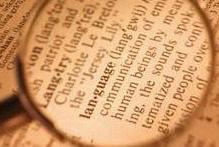
An understanding of how language works is absolutely essential if you want to examine communication and interaction between people. In this subject you will learn how language is acquired during childhood. Furthermore, you will learn how language has changed and is constantly changing in the age of the Internet. You will analyse speech and writing and develop your own writing skills in using different styles to suit different purposes and audiences. You will learn how to discuss language and how to understand its roots and its grammar. You will create your own texts and learn how to adapt and change texts created by others. If you enjoy discussions, reading and writing then this is a subject that will suit you. English Language blends analytical skills with creative flair to make this both a challenging and exciting subject.
What is the course content?
The English Language A Level will enable students to build on the skills they have developed at GCSE, by engaging critically with a wide range of texts and discourses. Students will investigate and analyse language under several themes which may include language change over time, English in the 21st Century, children’s language acquisition, original writing, the impact on gender, culture, power and diversity upon language, spoken language and textual variations and representations.
What sort of teaching, learning and assessment should I expect?
You will engage in discussions, carry out research, give presentations and take part in workshops. You will be encouraged to think more deeply about the different audiences and purposes of your own writing. You will learn how to analyse your own writing as well as that of others. You will write in different styles for a variety of purposes and audiences. You will study different styles such as advertising, legal documents, literary texts, even the latest jargon used on the Internet.
The A Level in Language is a two-year course. It consists of two exams worth 80%, and a coursework folder worth 20%, which consists of one piece of creative writing and a language investigation project. All assessment is in the summer of Year 13.

www .congletonhigh.com Page 29

ENGLISH LANGUAGE
What skills does English Language develop?
This course will make you think about how language is used – all around you - all the time! Taking English Language is hard work! In order to get the most out of the course you have to enjoy reading and writing. Discussions are often lively and good fun. You will have to learn how to discuss language and understand grammar. But don’t worry, you’ll be taught the terms you need to do this.
What courses or work-based training can I combine with my English Language course?
This course can be taken in conjunction with other academic or vocational courses at Congleton High School Sixth Form. English Language is a very versatile subject. It can be combined with any of the Arts, Humanities, Social Sciences or Vocational courses. It can also offer a refreshing alternative for students taking Maths and Science courses. It also offers excellent opportunities to cover Key Skills in Communication and Information Technology.
What careers or further studies could English Language lead to?
This course provides a good foundation for further English Language studies at college or university. You can use your A Level as part of an entrance qualification for degree courses at university. Many students progress to degrees in the Arts, Social Sciences or Humanities. English Language A Level will also be useful as a general qualification to support an application to study something completely different.
If you do not go on to Higher Education, the skills that you have acquired in reading, writing, analysis and communication will be valued by employers in a wide range of occupations.
For further information please contact Mrs Smith in the English Curriculum Area.

www .congletonhigh.com Page 30

ENGLISH LITERATURE

Examination Board: AQA Specification B
Why take English Literature?
English Literature A Level develops your skills in thinking, communication, empathy, creativity and evaluation, and is highly valued by universities and employers. If you enjoy reading, discussing and analysing texts and the challenge of constructing carefully evidenced arguments and essays, you will love A Level Literature. You will study books, plays and poems from a range of historical periods. Reading allows you to share authors’ feelings and experience, broadening your understanding of humanity, the world and ideas, and encouraging reflection and exploration. You will also study critical theory that demonstrates how texts can be reinterpreted and develop your own critical voice. Writing critical essays will teach you the value of rigorous argument and clear communication. Discussions will be wide-ranging, fun and help you articulate and develop your thinking and understanding.
Wha t is the course content?
The study of plays, prose and poetry, will be familiar from GCSE Literature. The texts are, however, more challenging. The critical and communication skills established at GCSE will be developed as learners are introduced to the discipline of advanced literary studies. Learners will develop their ability to analyse, evaluate and make connections and explore context and different critical interpretations of texts. A new area of study is literary theories, studied through the AQA A Level Anthology. Texts are selected from a range of historical periods. We currently study the genres of Tragedy and Crime, and texts may include: King Lear, Death of a Salesman, Tess of the D’Urbervilles, When Will There Be Good News, Atonement; Brighton Rock and poetry including Dufty, Wile and Browning, however we are reviewing the course and genres and texts may change. A minimum of eight texts will be studied and there will be one unseen text assessed by examination. Two coursework essays provide an option for independent text choice, allowing students to pursue their own literary interests and even become the author and write creatively.
Wha t sort of teaching, learning and assessment should I expect?
The A Level in Literature is a two year course. It consists of two exams worth 80% and two coursework essays worth 20%. All examinations are in the summer of Year 13.
Classes are smaller than for GCSE and there will be many opportunities to develop your study through theatre and study trips. You will read plays, prose and poetry and explore the texts through sharing ideas and researching contexts. Through discussion and careful annotation of texts, you will generate ideas and develop strong arguments and understanding. Classes tend to be small and informal, and everyone’s ideas and opinions are valued. You will be given lots of support and encouragement and will be taught literary critical terms and how to write authoritatively with confidence.

www .congletonhigh.com Page 31

ENGLISH LITERATURE
What skills does English Literature develop?
Over the duration of the course you will develop an understanding and an awareness of how meaning is made in literature.
• You will learn to justify your views and argue a case that is backed by sound, thoughtful evidence, and learn how to incorporate your views into insightful critical essays.
• You will develop empathy and understanding of human experience.
• You will explore techniques and be able to explain how a work of literature excites a range of emotions in readers.
• You will learn how a writer’s choice of form, structure and language helps him/her to express meaning and how writers create character and argument.
• You will compare styles and make relevant connections between texts.
• You will become familiar with a range of literary-critical approaches, and you will be taught how to use critical language and literary terms accurately.
• You will study the contexts of texts and how they reflect contemporary thinking.
• You will be supported in studying independently when completing coursework.
Ultimately, we want you to develop an informed, personal, academic voice to express your feelings and ideas about the literature that you read.
What other courses or work-based training can I combine with my English Literature course?
This course can be taken in conjunction with other academic or vocational courses at Congleton High School Sixth Form. English Literature is a very versatile subject. It can be combined with any of the Arts, Humanities, Social Sciences or Vocational courses. It can also offer a creative/ analytical option to students taking Maths and Science courses: the best scientists are creative thinkers.
Wha t careers or further studies could English Literature lead to?
Studying Literature prepares you for many careers, professions and areas of study at university. You can, of course study Literature, but Law, Economics, Business and even Medicine/ Dentistry courses often prefer students / apprentices who offer one subject showing they can think for themselves, interpret text and write well. A Level English Literature is highly respected as an entrance qualification for degree courses at all universities, including those in the Russell Group. In recent years students have progressed to degrees in Linguistics, Literature, Biology, Medicine, Maths, Law, Languages, Humanities, Anthropology, Art and Sciences. Apprenticeships are proving an increasingly popular choice with students gaining places on degree apprenticeships in Law and business with prestigious employers.
If you do not go on to Higher Education, the skills that you have acquired in reading, writing, analysis and communication will be valued by employers in a wide range of occupations.
Whatever you go on to do, a love of reading and being ‘well read’ and highly educated will benefit you throughout your life.
For further information please contact your English teacher or Ms Dearnaley.

www .congletonhigh.com Page 32

GEOGRAPHY
Examination Board: AQA
Why take Geography?

Want to know about the world around you? From the state of the economy to our responses to climate change, the breadth of Geography will never leave you bored. This is the most cross curricular subject and can lead onto almost any degree, as it is considered a Science or Humanities subject.
Wha t is the course content?
At Congleton High School we follow the AQA Geography syllabus. Only the A Level is delivered, unfortunately there will be no option to complete the AS Level course. Examinations are worth 80% of the marks with 2 papers at 2hrs 30mins each. The fieldwork report is worth the remaining 20%. This diverse qualification covers a broad range of topics.
The A Level subject content is outlined below.
Physical Geography
1. Water and carbon cycles
2. Coastal systems and landscapes
Human Geography
3. Global systems and global governance
4. Changing places
People and the Environment
5. Hazards
6. Contemporary urban environments
Geography Fieldwork Investigation and Geographical Skills
Overall you will complete 5 pieces of fieldwork and be taken on 4 different field trips, all in the North West. Fieldwork is assessed in both examination conditions and as an individual and independent report written in Year 13 on a topic of your choice. These visits should cost no more than £40 in total - financial assistance is available for eligible students.
What sort of teaching, learning and assessment should I expect?
Assessment will be continual with formal assessments in the shape of coursework and examinations. Teaching is through a variety of styles, such as discussion, Power Point presentations and research. There are also on-line materials and lessons. A large proportion of the skills lessons will be delivered using data collected from the field studies for example geospatial data, statistical skills, cartographic and graphical. You will practise exam techniques whenever appropriate to ensure a solid understanding of expectations.

www .congletonhigh.com Page 33

GEOGRAPHY
What skills does Geography develop?
Good Geographers are good communicators and are able to look at issues from different perspectives to analyse and manipulate data, as well as developing ICT skills to allow research, data analysis and resource interpretation. Due to its depth and range it is a subject that is accepted for degree courses whether it is a BA or BSC.
What other courses or work-based training can I combine with my geography course?
This course can be taken in conjunction with other academic or vocational courses at Congleton High School Sixth Form. The vast majority of subjects complement Geography, including Science especially Biology, Applied Science, Business Studies, Economics, Maths, Sociology, Politics and History.
What careers or further studies could Geography lead to?
Geography is well thought of by universities and employers as a subject that develops transferable and meaningful life skills. Since this course provides a good foundation for further geographical related studies, many of our students have chosen to continue with either pure Geography or environmental or geology based studies. It can also provide a solid base for related social studies. As a broad study area related to both Humanities and Science, it is a useful general qualification to support almost any subject at degree level.
Almost any career or degree course will accept Geography as it is the bridge between the Humanities and Science, as well as a subject that develops essential skills. From an employment point of view, Geography can lead to almost any job specification, from pilot to architect. Just a small selection of the careers you may follow could be travel and tourism, the Armed Forces, surveying, aviation, teaching, civil engineering, weather forecasting or the Civil Service.
Specific entry requirements for this course:
You should have studied Geography at GCSE and achieved a Grade 6.
For further information please contact Mr J Hulson, Assistant Curriculum Team Leader, Humanities.

www .congletonhigh.com Page 34

BTEC HEALTH & SOCIAL CARE
Examination Board: Pearson’s
Why
take Health & Social Care?
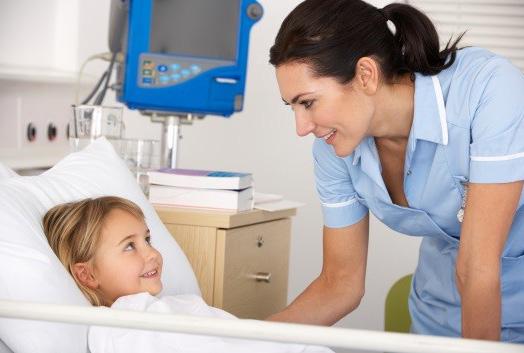
This course is for anyone who wants to develop and sustain an interest in Health, Early-Years Care and Education, Social Care and issues affecting the care sector. You will develop knowledge and understanding of Health, Early Years and Education and Social Care. You will build upon your own skills of research, evaluation and problem solving. You will develop into an effective independent learner. This is the course for anyone who has an interest in working within the caring professions. You will take Health and Social Care if you love people and have a desire to care.
What
is the course content?
The course is an BTEC Level 3 National Extended Certificate in Health and Social Care. The units of work that you would cover in this course include:
External Assessed (Exam)
Unit 1 – Human Lifespan Development
Unit 2 – Working in Health and Social Care
Internally Assessed (Coursework)
Unit 5 – Meeting Individual Care and Support Needs
Unit 11 – Psychological Perspectives
Assessment
In order to achieve the BTEC Level 3 National Extended Certificate in Health and Social Care, learners must achieve a Pass grade in all internally, and at least a near pass on externally assessed units. Work experience isn’t mandatory; however, we strongly recommend you complete work experience alongside your studies.

www .congletonhigh.com Page 35

BTEC HEALTH & SOCIAL CARE
What skills does Health & Social Care develop?
This course will enable you to become an independent learner. You will develop research skills, you will be able to question objectively, analyse, discuss, and formulate alternative approaches to the delivery of a variety of caring services. You will develop an understanding of development and how needs can best be met. You will also learn about (and produce evidence towards) the Care Certificate which you would be expected to complete once in employment in a Health and Social Care setting.
What other courses or work-based training can I combine with my Health & Social Care course?
This course can be taken in conjunction with other vocational or academic courses at Congleton High School Sixth Form. Health and Social Care fits with a variety of subjects particularly Psychology, Sociology, Biology, English and PE. Similar skills will be required in all of these subjects.
What careers or further studies could Health & Social Care lead to?
The course aims to provide learners with an in-depth knowledge of core subject areas in health and social care to support progression into Higher Education, the workplace or further learning in related subject areas at Level 4 and above. It therefore provides an excellent foundation for entry into any of the caring professions including Nursing, Childcare and any type of caring work. It can also take you into Social Work, Midwifery, Teaching and other university courses such as Social Studies, Psychology and higher-level Health Studies. You will also develop study skills which will equip you for further study on any university course.
Specific entry requirements for this course:
It is strongly recommended that you have achieved Grade 5 in English. You do not need to have studied Health and Social Care in KS4. However, all applications will be considered on an individual basis.
A DBS check will need to be completed prior to going on work placement and must be paid for by the learner.
For further information please contact Mrs J Airey, Social Sciences Curriculum Team Leader.

www .congletonhigh.com Page 36

HISTORY
Examination Board: AQA
Why take History?
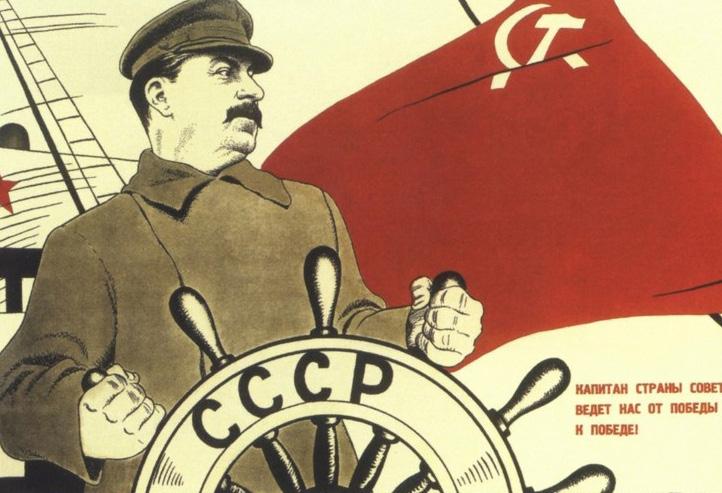
“It’s just about studying old stuff isn’t it? What use will that be to me?” Well, there is much more to it than that. Studying History gives you the background to the issues and events that make today’s headlines. History also helps you to understand people’s motives, attitudes, beliefs and behaviour. History is a guide not only to the past but also to the present and the future.
What is the course content?
At Congleton High School we follow the AQA syllabus at A Level. This covers both British and World History components. We currently study the following units:
Unit 1 – Russia 1855 - 1964
Year 12 covers Tsarist Russia 1855 – 1917 and investigates the rule of the last three Tsars as they struggled, and ultimately failed, to reform Russia. This period saw Russia industrialise and then descend into the chaos of World War One, leading to the almost inevitable demise of Tsarism.
Year 13 continues the study of Russia into the Soviet period following the October 1917 revolution. Students will investigate the impact of the rule of Lenin, Stalin and Khrushchev as they struggled to build a communist paradise. The course ends with Khrushchev losing power in 1964. Unit 1 is assessed by a June exam in Year 13 which is worth 40% of the final A Level grade.
Unit 2 – The Making of Modern Britain 1951 - 2007
Year 12 investigates Britain’s emergence from the post war austerity years in 1951 through to the ‘Winter of Discontent’ in 1979. The unit assesses the social, political and economic impact of the premierships of: Churchill, Macmillan, Wilson, Heath and Callaghan. The long decline of Britain as a world power in this period is also studied.
Year 13 continues the study of post-war British history and debates the impact of the Thatcher years through to Blair leaving power and the financial crisis of 2007. Unit 2 is assessed by a June exam in Year 13 which again is worth 40% of the final A Level grade.
Unit 3 – Norman England 1066 – 1216
To complete their studies to the full A Level, students will need to complete an historical enquiry by investigating the Norman and Angevin periods in England (1066 – 1216). This unit gives students the opportunity to broaden their skills and knowledge by studying an early phase of English history. Medieval history has been a popular option for many of our ex-students continuing their studies to degree level. Unit 3 is assessed by a 4,500-word essay submitted by students in Easter in Year 13. This unit is worth 20% of the final A Level grade.

www .congletonhigh.com Page 37

HISTORY
What sort of teaching, learning and assessment should I expect?
Teaching will involve a variety of methods including class discussions, group work, individual research, and presentations. Assessment will be continual with formal assessments in the shape of coursework and examinations.
What skills does History develop?
Good historians are good communicators. The skills that you will develop in History will enable you to make valid judgements, analyse differing views and be able to draw up your own balanced opinions. You will learn to defend your views whilst listening and responding to opposing ideas. The career skills developed through the study of History include: reasoned argument and debate; report writing; communicating with clients; presenting your case; and making judgements.
What other courses or work-based training can I combine with my History course?
This course can be taken in conjunction with other academic or vocational courses at Congleton High School Sixth Form. History combines well with many subjects, but the communication skills acquired while studying A Level English will complement those in History. However, History is an interest in its own right and can be studied with any combination of subjects at A Level.
What careers or further studies could History lead to?
History is a subject that can be taken further should you make a move into higher education. Your further studies could involve further specialisation in one of many different areas of local, national or international history or possibly a closer study of economic, social or political history. Alternatively, many colleges and universities offer courses where History can be studied in combination with other subjects.
How about careers? So, you don’t want to be a History Teacher?
Well, you don’t have to be one. There are many career paths which value the skills you will acquire during A Level studies. The ability to evaluate evidence and then produce a coherent and sustained argument is a core skill in many professions. Those who have studied History in the past have followed many different careers including journalism, law, the media, finance, and business.
For further information please contact Mr J. Fryer, Curriculum Team Leader, Humanities.

www .congletonhigh.com Page 38

INFORMATION TECHNOLOGY
(BTEC Level 3 National Extended Certificate)
Examination Board: Pearson
Why take the BTEC in Information Technology?

In every sector of the economy, workers with IT and computing skills are in high demand. This area of study offers a variety of career paths from network engineers and programmers to the more creative areas of web design and graphics. The BTEC course helps develop real world practical skills that industry is crying out for. Alternatively, this is an excellent pathway into university.
What is the course content?
To achieve the BTEC Level 3 Extended Certificate in IT, you must complete three Mandatory Units:
• Information Technology Systems (written exam)
• Creating Systems to Manage Information (exam board set task)
• Using Social Media in Business (coursework) and one Optional unit taken from a wide choice, which might include:
• Data Modelling
• Website Development
For those students who demonstrate an excellent work ethic and dedication to the course, there is also the option of extending this qualification to the equivalent of up to 3 A Levels. Additional units could include:
• Programming
• Mobile Apps Development
• Computer Games Development
What sort of teaching, learning and assessment should I expect?
You will be taught the main skills you need to complete assessment tasks, but you will be expected to develop your skills to a much higher level independently. Assessment is a mixture of written examination, exam board set tasks and coursework.
What skills does Information Technology develop?
Students will develop problem-solving skills through the practical application of information and communication technology, as well as the ability to analyse, appraise and make critical judgments about the use of information and communication technology systems. In addition they will also develop the interpersonal skills necessary for communicating with others.

www .congletonhigh.com Page 39

INFORMATION TECHNOLOGY (BTEC Level 3 National Extended Certificate)
What other courses or work-based training can I combine with my Information Technology course?
This course can be taken in conjunction with other vocational or academic courses at Congleton High School Sixth Form. ICT complements all A Level courses, especially Media Studies, Product Design and Mathematics. The skills and knowledge developed on this course will be invaluable for all studies at this level.
You MAY be able to extend this qualification beyond the Extended Certificate so that you follow an IT course equivalent to 2 or 3 A Levels. This could mean that you would only study IT, perhaps alongside a work experience placement. If this is of interest to you, please discuss it with Mr Curry and/ or Miss Boulton.
What careers or further studies could Information Technology lead to?
The course could lead to a wide variety of careers in IT or computing, depending on the specialist skills the students have developed. The new BTECs are qualifications that may be recognised by some Russell Group Universities to study certain courses.
Specific entry requirements for this course:
Ideally students should achieve at least a Grade 4 in English and Maths. You are not required to have studied ICT at GCSE level.
For further information please contact Mr Curry, Director of E-Learning.

www .congletonhigh.com Page 40

MATHEMATICS
Examination Board: Edexcel
Why take Mathematics?
Do you relish the challenge of solving problems?
Do you enjoy algebra?

Do you have the ability to think through problems in logical and analytical way?
Are you prepared to work consistently hard to achieve your potential?
If the answer is yes to these questions then you should consider studying Mathematics in the Sixth Form.
What is the course content?
Pure Mathematics makes up two thirds of the A Level course, and includes topics such as algebra, trigonometry, graphs and functions as well as many other important new concepts. Many of the topics in Pure Mathematics are interesting in their own right, but they are also an important foundation for other branches of Mathematics.
Applied Mathematics makes up one third of the course. All students studying Mathematics at A Level will also study aspects of both:
Mechanics - this is an important subject in the study of Engineering, Physics and some other sciences. The study of Mechanics applies Mathematics to physical problems and examines topics such as the motion of objects, and how they respond to the action of forces. You will learn the technique of mathematical modelling, which turns a complicated physical problem into a simpler one that can be analysed and solved using mathematical methods. Mechanics is useful for students with a particular interest in engineering and/or physics.
Statistics - This is about the collection, presentation, analysis and interpretation of data. Statistics are collected by governments, scientific researchers and commercial enterprises for a variety of reasons. Students studying statistics also look at probability theory. Many of the ideas you will meet in statistics have applications in a wide variety of other fields and knowledge of statistics is particularly useful to those taking subjects such as Biology, Psychology, Geography, Sociology, Economics and Business Studies.
Strong algebraic skills are required within all the disciplines of both Pure Mathematics and Applied Mathematics.

www .congletonhigh.com Page 41

MATHEMATICS
What sort of teaching, learning and assessment should I expect?
Mathematics will be taught by first developing the required skills and techniques and then applying them to arrive at a solution to problems. Homework will be set nearly every lesson and assessments under test conditions will take place every few weeks. You will require a high degree of self-motivation and time management. When you decide to study Mathematics you are expected to complete all tasks to the best of your ability and seek help whenever necessary. Your teachers will always be willing to help you between lessons if you are having difficulty completing a task.
What skills does Mathematics develop?
Aside from the obvious mathematical skills that you will develop during the course, studying Mathematics at this level will allow you to develop organisational and analytical skills. The ability to apply these to a variety of tasks will help in other subjects.
What other courses or work-based training can I combine with my Mathematics course?
This course can be taken in conjunction with other academic or vocational courses at Congleton High School Sixth Form. Mathematics can be studied alongside most subjects, adding a new dimension to your studies.
What careers or further studies could Mathematics lead to?
Mathematics is a highly regarded and sought after qualification. This course provides a good foundation for further studies in a wide range of courses at university or college and for a number of careers. This range extends far beyond the obvious ones of Engineering, Mathematics and Physics to also include: Economics Medicine Architecture Accountancy Teaching Psychology Computing Information Technology Law
For further information please contact Mrs C Hope, Curriculum Team Leader, Mathematics.

www .congletonhigh.com Page 42

MATHEMATICSFURTHER MATHEMATICS
Examination Board: Edexcel
Why take Further Mathematics?
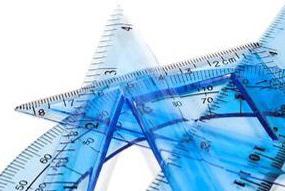
Are you intending to take A Level Mathematics and are still keen to learn and understand more?
Would you like to apply to a top University to do a degree in Mathematics or a Mathematics-based subject like Engineering, Physics or Computing?
Would you like to meet some interesting Mathematical ideas not covered in the standard Mathematics A Level?
Are you prepared to think for yourself and work consistently hard to achieve your potential?
If the answer is yes to these questions then you should consider studying Further Mathematics in the Sixth Form.
What is the course content?
Pure Mathematics. The Pure Mathematics element of Further Mathematics builds on the topics of Functions, Algebra, Differential Equations and Calculus introduced in the standard Mathematics A Level. New topics include Complex Numbers, Matrices and Mathematical Proof. Further Pure Mathematics makes up 50% of the A level course.
Applied Mathematics. All students studying Further Mathematics at A Level will study aspects of Applied Mathematics. This makes up the remaining 50% of the course the course.
In the first year, students will cover new topics from a branch of Mathematics called Decision Mathematics. In the second year, students will continue to study Decision Mathematics or topics from Statistics and Mechanics that are additional to those covered in standard A Level Mathematics.
Decision Mathematics - this looks, amongst other things, at how to solve problems involving networks (e.g. computer, road, rail and telephone networks). Problems might include finding the shortest route by road from one city to another or perhaps the cheapest way of laying telephone cables to connect towns. You meet a range of methods, or algorithms, which enable such problems to be tackled. There are important applications of Decision Mathematics in very different areas such as in electronic circuits and the scheduling of tasks in the construction industry.

www .congletonhigh.com Page 43

MATHEMATICS - FURTHER MATHEMATICS
What sort of teaching, learning and assessment should I expect?
Further Mathematics will be taught by first developing the required skills and techniques and then applying them to arrive at a solution to problems. Homework will be set nearly every lesson and assessments under test conditions will take place every few weeks. You will require a high degree of self-motivation and time management. When you decide to study Further Mathematics you are expected to complete all tasks to the best of your ability and seek help whenever necessary. Your teachers will always be willing to help you between lessons if you are having difficulty completing a task.
What skills does Further Mathematics develop?
Aside from the obvious mathematical skills that you will develop during the course, studying Further Mathematics will make you think and so develop your reasoning skills. It will help your understanding of the standard Mathematics A Level and help you to succeed on any Mathematics-related degree course.
What other courses or work-based training can I combine with my Further Mathematics course?
Further Mathematics must be studied in addition to standard Mathematics. It can be taken in conjunction with other academic or vocational courses at Congleton High School Sixth Form
What careers or further studies could Further Mathematics lead to?
Further Mathematics is a highly regarded qualification. This course provides a good foundation for further studies in courses at university or college in the areas of Engineering, Mathematics, Computing and Physics. The study of Further Mathematics is now a requirement at most top universities for courses in these areas.
For further information please contact Mrs C Hope, Curriculum Team Leader, Mathematics.

www .congletonhigh.com Page 44

MATHEMATICS GCSE RE-SIT

Why take Maths GCSE re-sit?
All students who do not get a Grade 4 in GCSE Mathematics in Year 11 must continue to study towards an appropriate qualification.
What is the course content?
At the start of the course your teacher will provide you with a breakdown and analysis of your GCSE Maths papers from the examination board. From this your teacher will be able to help you focus on your own particular needs.
What sort of teaching, learning and assessment should I expect?
You will be expected to work independently. You will be given a list of tasks to complete, most of which involve the tuition and practice materials on the Mathswatch. It will be your responsibility to complete these tasks weekly, making use of the time-tabled tutorial sessions with your teacher to seek help when necessary and hand in completed work.
For further information please contact Mrs C Hope, Curriculum Team Leader, Mathematics.

www .congletonhigh.com Page 45

DIGITAL MEDIA
(Level 3 Cambridge Technical Extended Certificate)
Examination Board: OCR
Why take Media Studies?

Today’s society is media-saturated: we ‘read’ images as much as we read the written word. From Instagram to Twitter via film and video games, this lively and wide-ranging course will get you working creatively to produce high-quality media products and equip you with the up-to-date knowledge needed to thrive in the fast-paced modern world, where a mastery of media is integral to success in a vast range of careers.
What is the course content?
Over the two-year course, you will focus on media products and their audiences, exploring how the media target, engage and affect their consumers, as well as building up an in-depth understanding of planning and pre-production, equipping you with the confidence to step up to real-world media industry work. Alongside these two large areas, the course includes a sequence of specialist units, each with a focus on a specific area of media industry skills and knowledge. These include: how to plan and pitch a media product successfully; the role of the script in media products (and how to write an effective one); making a film (from initial concept through filming an extract to post-production); and advertising campaigns (how they work and how to plan and produce one).
Across the course you will acquire skills in planning, pre-production, scripting, cinematography, editing and digital imaging, as well as honing your own creativity. You will be using industry standard software right from the beginning to make your initial ideas become a reality!
What sort of teaching, learning and assessment should I expect?
There are two exams that make up 50% of the final grade, with the four internally examined units (coursework) making up the other 50%. Coursework is marked internally and externally moderated. Types of teaching and learning are varied, including a combination of independent research projects, industry investigations, discussions, lectures and practical assignments. You will also undergo extensive training to improve your technical knowledge and skill base with regard to a range of technical industry-standard equipment and software. When briefs are set, the only limit is your imagination, as coursework outcomes are open enough for you to highlight your creativity and skills in the world of media.

www .congletonhigh.com Page 46

DIGITAL MEDIA
What skills does Digital Media develop?
Digital Media encourages and actively promotes independent study. You are expected to take ownership of your own education as well as expressing your creativity. You will develop time-management strategies in order to prioritise your workload. You will also develop extensive skills in the technical areas of media: from film to still image, traditional to online, you will have greater understanding and skill at manipulating media to create meaning. You will be given the opportunity to explore advanced digital presentation software products, along with more advanced filming techniques such as split screen, green screen and animation.
What other courses or work-based training can I combine with my Digital Media course?
This course can be taken in conjunction with other vocational or academic courses at Congleton High School Sixth Form. Digital Media is highly compatible with most of the subjects available in the Post16 curriculum, from creative to technical, and the wide-ranging skills and knowledge it develops make it especially complementary to ICT, Art, Photography, English, Psychology and Sociology.
What careers or further studies could Digital Media lead to?
This course provides an excellent foundation for a range of career or further study options. There are numerous career prospects that link both directly and indirectly with Digital Media, for example: film production, radio, journalism, business, event management, graphic design, advertising and digital marketing and PR.
In addition, this subject also prepares you for the next stage in your educational and personal development, whether that be in the workplace or in higher education. By exploring the media’s enormous role in the modern world, the course provides a valuable perspective on many other academic and vocational fields, and it equip you with wide-ranging personal and professional skills, of great value in any career. For this reason, Media Studies also has strong value as a general qualification, supporting an application for further study even in an unrelated subject.
Specific entry requirements for this course:
It is highly recommended that you should have achieved a minimum of a Grade 4 in GCSE English Language or Literature. All applications will be treated on an individual basis.
For further information please contact Mrs Dearnaley, English Curriculum Team Leader or Mr Knight, Media teacher.

www .congletonhigh.com Page 47

MUSIC
(BTEC Level 3 National Extended Certificate)
Examination Board: Pearson
Why take BTEC Music?

We are offering students the opportunity to take an entirely practical based Music course. If you enjoy performing and wish to develop your skills further, this is the best course for you.
What is the course content?
There are four core units over the two-year course. These include Ensemble Music Performance, Professional Practice in the Music Industry, Solo Performance and Practical Music Theory and Harmony.
The main performance activities throughout the course will require you to complete solo or ensemble performances. These will need to be in a variety of styles but you will have lots of choice within the repertoire. Full details of the specification: www.pearson.com
What sort of teaching, learning and assessment should I expect?
Throughout the course you will be expected to provide detailed evidence of your work. This will be through recorded performances and written work. You will need to perform to a variety of audiences from informal situations, to primary school students to more formal recitals. There are also some externally assessed units. These will be completed in supervised conditions in May/June 2022. This will be a fabulous course for the student who enjoys performing!
What skills does BTEC Music develop?
Of course, the principal skills of musicianship are the main focus. Musical performance, creative ability and performance skills are developed through listening and experience. Your skills in musictechnology applications will also improve (use of recording equipment, sequencing software packages and the PA systems). The course of study will also improve your communication skills in a general way.
What other courses or work-based training can I combine with my BTEC Music course?
This course can be taken in conjunction with other vocational or academic courses at Congleton High School Sixth Form. Typically, students combine the subject with other Performing Arts, Media and Fine Arts courses. The subject also has a naturally affinity with the study of Language, both our native language and, increasingly, with Modern Foreign Languages.
For some students, BTEC Music offers a complete contrast to their other subject choices (e.g. for those who are studying Science and Maths courses).

www .congletonhigh.com Page 48

MUSIC (BTEC Level 3 National Extended Certificate)
What careers or further studies could BTEC Music lead to?
For any careers centred on musical performance or composition, BTEC Music is very useful. Students may go on to read music at University and Musical Conservatoires, or to embark on a joint-honours course in order to keep their options deliberately wide. For work in Broadcasting, Media and especially Primary School Teaching, the study of Music has a special value.
Specific entry requirements for this course:
Ideally, you will have completed the GCSE Music Course, although this is not essential. It is essential, however, that you play a musical instrument/sing to a competent standard.
For further information please contact Miss Blundred, Curriculum Team Leader, Music.

www .congletonhigh.com Page 49

DIGITAL PHOTOGRAPHY (Lens and Light Based Media)

Examination Board: AQA
Why take Digital Photography?
Are you creative, artistic and wishing to explore photography and computer-manipulated imagery? Do you experiment with both traditional aspects of photography and develop your images inventively by manipulation using Photoshop? Are you an amateur photographer and regularly take your own photographs?
If you enjoyed GCSE Art and Design or Media, then this is an opportunity to develop your creativity and skills further by taking A Level Digital Photography.
What is the course content?
The course is similar to GCSE Art and Design in terms of the four marking criteria, but requires a greater depth, commitment and understanding of digital photography. Through developing traditional photographic techniques, researching photographers/digital artists and experimenting with image manipulation, students will produce work in response to a starting theme.
The course is made up of two components started in Year 12 and completed in Year 13:
Year 12
• Various briefs set which explore the fundamental aspects of photography.
• You will start component 1 towards the end of Year 12.
Year 13
• Component 1 (a practical annotated assignment with 3000 word conclusion)
• Component 2 (an external assignment with a 12 hour timed piece under examination conditions).

www .congletonhigh.com Page 50

DIGITAL PHOTOGRAPHY -
(Lens and
Light Based Media)
What sort of teaching, learning and assessment should I expect?
You will be encouraged through the provision of a supportive environment that is sensitive to your individual needs and be helped to prepare for progression onto further studies or work.
You should expect:
• Independent research
• Practical, theoretical and technical tuition
• Individual support, guidance and feedback on progress
• Lectures and discussion
• Trips and visits to galleries.
Assessment includes one formal examination per year.
What skills does Digital Photography develop?
• The ability to plan and organise your time effectively
• The ability to research, analyse and solve problems
• Knowledge and understanding of digital SLR cameras
• The understanding of a creative design process
• The ability to present work in a professional high quality way
• Your ability to use verbal, written and ICT communication skills.
Digital Photography develops your creativity, which is desired by future employers in any industry. You will also be learning new techniques that are relevant to your theme or chosen way of working.
What other courses or work-based training can I combine with my Digital Photography course?
This course can be taken in conjunction with other academic or vocational courses at Congleton High School Sixth Form. This course would go very well alongside A Level Art and Design. It would also complement subjects such as Textiles, Media Studies, ICT, English, History, Psychology, Geography and Chemistry.
What careers or further studies could Digital Photography lead to?
There are many careers and Further Education courses in Art and Design that can be accessed through Digital Photography. In an increasingly technological and digital world, areas such as Visual Communication, Graphics, Illustration, Web based design, Advertising, Animation, Media, Film, Architecture, Digital Art, Fashion Photography, Journalism and Product Design are all possible as career progression.
In addition, the qualification can be used to support application to university to study a wide range of other subjects outside Digital Photography.

www .congletonhigh.com Page 51

PHYSICS

Examination Board: OCR
Why take Physics?
We are born with a curiosity to understand the world around us. To ask questions such as “How did the universe begin?” “How does the sun keep shining?” and “How do mobile phones work?” If you find that the more answers you discover, the more questions that you want to ask, then you are on your way to being a physicist.
As well as being concerned with deep fundamental questions, Physics forms the basis for much of present and future technology. For example, when optical disk drives were developed, it was crucial that the physics of lasers and the interaction of light with matter were well understood. This in turn depended on an understanding of atomic and quantum physics.
What is the course content?
The course consists of a range of topics including:
• Particles
• Quantum phenomena
• Electricity
• Mechanics
• Materials and waves
• Momentum
• Circular and simple harmonic motion
• Gravitational, electric and magnetic fields.
• Nuclear and astrophysics
What sort of teaching, learning and assessment should I expect?
Practical work will be an integral part of study to reinforce knowledge and understanding as well as develop specific skills.
There will be complete investigations and problem-solving activities as well as opportunities to extend individual interests in topics. Assessment will focus on aspects of planning, carrying out, analysing and evaluating experiments.
Other activities would include note taking, discussion, written questions requiring short and extended answers, concept modelling, researching and analysing data including full use of ICT and presentations to various audiences.

www .congletonhigh.com Page 52

PHYSICS
What skills does Physics develop?
The skills developed during the Physics course include:
• Practical skills including those of dexterity and organisation.
• Skills of generalisation and interpretation of results.
• Investigative skills.
• Ability and confidence in the subject.
• Manipulation of data.
What other courses or work-based training can I combine with my Physics course?
This course can be taken in conjunction with other academic or vocational courses at Congleton High School Sixth Form. Many students in the past have combined Physics with Chemistry and Mathematics.
What careers or further studies could Physics lead to?
This course provides a good foundation for further Physics related studies at college or university. Physics opens the door to an amazing world. Employers rate Physics qualifications very highly. As a physicist your studies may lead you to work in many areas:
• As a Meteorologist.
• As an Electrical or Mechanical Engineer.
• As a Doctor or other areas of medicine.
• In Finance.
• In Marketing, Business and Management.
• In Astronomy.
It will also be useful as a general qualification to support an application to study different courses, such as Mathematics and Engineering.
For further information please contact Mr E Tyrrell, Assistant Head Teacher or Dr M Buchan (Lead Teacher of Physics)

www .congletonhigh.com Page 53

POLITICS
Examination Board: Edexcel
Why take Politics?
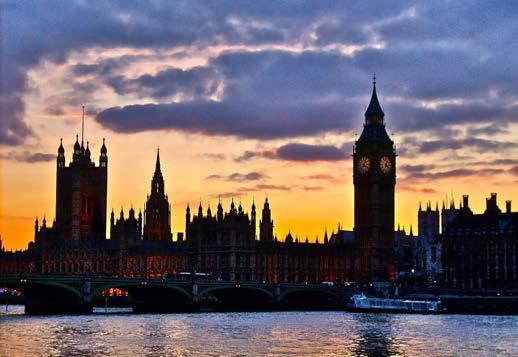
Politics might seem like a dry subject, but once you start to think about what MPs actually do all day, it isn’t. Anyone concerned about the stories behind the news will be interested in studying Politics. Law and order, levels of unemployment, immigration, the education system, the use of Britain’s armed forces - these are just a few of the questions that politicians should answer for you. Is our Prime Minister effective? Is crime getting worse? Are there enough jobs for you when you leave school? Is our country fair and equal for all? If you care about these, this course is for you.
What is the course content?
Year 12
Unit 1 – UK Politics
This unit will introduce you to the fundamentals of what politics is all about. We begin by discussing democracy itself and how it operates in the real world. We then study the advantages and problems of the wider use of referendums in the UK before moving on to the origins, history and traditions of the main UK political parties. The vexed questions of the fairness of various electoral systems are then considered, before we finish with a study of voting behaviour and the role of the media.
Unit 2 – UK Government
Once students have a good grounding of the theory of politics, we move on to investigate how it operates in practice in the UK. What is the UK constitution, and how effective is it? How does parliament operate and does the House of Commons or Lords need reform? What makes a good or bad prime minister? Who really rules the UK?
Almost all students will then progress to Year 13, however for students wishing to complete a one-year course, the option of taking an AS Level exam at the end of Year 12 can be discussed.
Year 13
Unit 3 – UK politics and core political ideas (33% of total A Level).
Year 13 begins by consolidating and extending our Unit 1 studies into political participation and democracy. We then move on to the core political ideologies of; conservativism, liberalism and socialism. How, why and where did these ideas originate? How well have they worked in practice? Are they still valid ideas today and do they have a place in the 21st century?
Unit 4 – UK Government and other political ideas (33% of total A Level).
Again, this unit consolidates and extends our earlier studies in Unit 2. We then move on to explore a fringe political idea – anarchism. Does it offer a workable alternative to the ways in which societies are currently organised? Is it a coherent and valid set of ideas or the stuff of dreams?
Unit 5 – Comparative politics (33% of total A Level).
This unit studies the U.S. political system; Congress, the Presidency and the Supreme Court. We make a comparison with the UK political system and debate similarities and differences and which system best serves its people.
Units 3, 4 and 5 are each examined by a 2-hour exam at the end of Year 13.

www .congletonhigh.com Page 54

POLITICS
What sort of teaching, learning and assessment should I expect?
Studying Politics will involve a variety of methods including class discussions, group work, individual research, and presentations. However, the real world of politics changes almost daily and students will need to read well beyond a text book. Taking an active and critical interest in real world current affairs is crucial to achieving a strong grade. Assessment will be continual with formal assessments in the shape of essays and examinations.
What skills does Politics develop?
The most successful Politics students are those who critically consider a range of ideas and not just their own. Politics will help you to debate competing interpretations of the ways in which the world is organised and problems within it. You will learn to defend your views whilst listening and responding to opposing ideas. The best Politics students do not rush to superficial judgement but consider the deeper implications of people’s actions and beliefs. The career skills developed through the study of Politics include: reasoned argument and debate; presenting your case; and making considered judgements.
What other courses or work-based training can I combine with my Politics course?
This course can be taken in conjunction with other academic or vocational courses at Congleton High School Sixth Form. Politics combines well with many subjects, but particularly complements History, Law, Economics, Sociology and Psychology. However, Politics is an interest in its own right and can be studied with any combination of subjects at A Level.
What careers or further studies could Politics lead to?
Politics is a subject that can be taken further should you make a move into higher education. It can be studied as a subject in its own right but is also often offered as a joint honours course alongside History, Law, International Relations and other Humanities subjects.
How about careers?
Clearly, not everyone can become an MP overnight, however there are career paths such as political researchers, civil servants and campaigning groups which value the skills you will acquire during A Level studies. The ability to evaluate evidence and then produce a coherent and sustained argument is a core skill in many professions. Politics also allows access to many different careers including; public relations, journalism, law, the media, finance and business.
For further information please contact Mr P Franklin, Assistant Leader of Sixth Form and Leader of A Level Politics, Humanities.

www .congletonhigh.com Page 55

PRODUCT DESIGN
Examination Board: AQA
Why take Product Design?

This course will appeal to students who have an enquiring technological mind and an interest in gadgets and product design. You will enjoy designing and making things from wood, metal and plastics at an advanced level, and have creative skills in presenting ideas to a high graphical level. Throughout the course the design aspect is an integrated process that involves the consideration of various human needs, then producing a response in the form of a 3D product.
What is the course content?
This qualification is linear, which means that students will sit all their exams and submit all their nonexam assessment at the end of the course.
Paper 1 – Technical Principles (EXAM)
o 30% of A Level
o 2 ½ hour written paper
o Mixture of short and extended responses
Paper 2 – Designing and Making principles (EXAM)
o 20% of A Level
o Section A – Product Analysis :30 marks
o Section B - Commercial manufacture: 50 marks
NEA – Design and Make project ( COURSEWORK)
o 50% of A Level
o A substantial design and make project
What sort of teaching, learning and assessment should I expect?
Taking Product Design will help you to study the design of real products so that you can participate in today and tomorrow’s rapidly changing technological world. You will become a critical and informed user of products and become a designer and innovator. The course will help you to think and do something creative to improve the quality of life for everyone.
You will become self-motivated and a creative problem solver. You will look for needs, wants and opportunities and respond to them by developing a range of design ideas and by improving your skills to make and evaluate end products and systems. You will combine practical skills with an understanding of aesthetics, social issues, environmental issues, function, and industrial practices. You will be encouraged to take a broad view of design and technology, to develop your capacity to design and make products and to appreciate the complex relations between design, materials, manufacture and marketing.

www .congletonhigh.com Page 56

PRODUCT DESIGN
What skills does Product Design develop?
Product Design is a subject for those students who are excited by activities associated with the development and making of high-quality products. It is a subject where you are required to be proactive and not just reactive. You must go and ask, search out, look for, look at, experiment with, practice, test, discuss.
What other courses or work-based training can I combine with my Product Design course?
This course can be taken in conjunction with other academic and vocational courses at Congleton High School Sixth Form. Product Design combines well with Maths and Physics where further study in Engineering is the aim. Other subjects that complement Product Design are Art, English, Business Studies and ICT.
What careers or further studies could Product Design lead to?
This course provides a good foundation for either further design related studies at college or university or as a general qualification to support a career in the following areas:
Architecture
Art & Design
Biotechnology
Computer Graphics
Design Engineering
CAD Modeller
Fashion Design
Furniture Design
Marketing
Graphic Design
Industrial Design
Product Design
Interior Design
Materials Design
Physics
Systems Analysis
Textiles Technology
Web Design
For further information please contact your Technology teacher or Miss S Kenny, Design Technology Curriculum Team Leader.
For further inspiration and ideas, why not follow our DT Department Twitter feed @CHStechdept?

www .congletonhigh.com Page 57

PSYCHOLOGY
Examination Board: AQA
Why take Psychology?
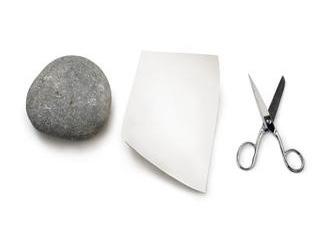
Why do we remember some things and forget others? What triggers our reactions to stress? What makes some behaviours abnormal and others normal? Are people born criminals? If you are intrigued to know the answers to any of these questions, then Psychology will appeal to you. The subject will help you to understand why people might behave or think in the way that they do.
What is the course content?
You will study for 3 exam papers.
PAPER 1– Introductory topics in Psychology
Social Psychology (Social Influence) which considers why, in many situations, people follow the majority, despite supposedly having free will and why people often obey authority unquestioningly. Cognitive Psychology (Memory) which examines why we remember certain things and why we forget others and examines the usefulness of eyewitness testimony in crime investigations.
Developmental Psychology (Attachment) which considers why we become emotionally attached to certain people during childhood and how this affects relationships in later life and what happens if we don’t form an emotional bond during our early years.
Psychopathology (Abnormality) which looks at how what is normal varies between cultures, historical periods and between individuals. We investigate ‘abnormalities’ such as phobias, depression and obsessive-compulsive disorder and how such conditions can be treated.
PAPER 2 – Psychology in Context
Approaches in Psychology in which we cover the Learning approach, the Biological approach, the Cognitive approach, the Psychodynamic approach and the Humanistic approach.
Biopsychology in which we cover the functions of different bodily systems such as the nervous system, the endocrine system and the fight or flight response. It also deals with the structure of the brain and how we can study the brain e.g. through brain scans, and the topic also deals with biological rhythms such as the sleep-wake cycle.
Research Methods in which we look at different types of research methods and their strengths and limitations; research design and data analysis.
PAPER 3 – Issues and Options in Psychology
Issues and Debates in Psychology in which we cover issues such as gender and culture bias, and debates such as nature versus nurture and free will versus determinism. You will also consider ethical issues within psychological research. You will also study three topics from a range of topics that includes Relationships, Schizophrenia, Aggression, Gender, Eating Behaviour, Forensic Psychology, Cognition Development, Stress and Addiction.

www .congletonhigh.com Page 58

PSYCHOLOGY
What sort of teaching, learning and assessment should I expect?
Teaching and Learning:
A range of teaching and learning styles are employed throughout the course including: experiments, co-operative learning structures, class discussion and debates; individual and group research; presentations; curriculum based trips e.g. to Trentham Monkey Forest to study animal behaviour; note taking; and participating in mock experiments to consolidate understanding. Formal assessment comprises three 2 hour papers on the topics listed above. Questions on each paper include multiple choice, short answer and extended writing questions. Informal assessment might include question and answer, presentations, critical thinking activities, discussions, use of interactive whiteboards, flashcards and sequencing activities etc.
What skills does Psychology develop?
Psychology provides you with the opportunity to develop both personal and academic qualities. By the end of the course you will be able to question commonly held assumptions. You will have a better understanding of individuals and the social world around you. You will develop key skills in organisation, essay writing, evaluation, analysis, discussions and doing presentations.
What other courses or work-based training can I combine with my Psychology course?
This course can be taken in conjunction with other academic or vocational courses at Congleton High School Sixth Form. Psychology fits with most subjects. For example, scientists (particularly Biologists) often take Psychology as there is a huge scientific element to the subject or just to do something that is based on the social world rather than the physical one. Psychology certainly complements Sociology, Law, Business Studies, PE, Media Studies, History and English in both its forms, as similar skills are required.
What careers or further studies could Psychology lead to?
The course provides a good foundation for either further Psychology related studies at college or university, or as a general qualification to support a career in: Clinical Psychology; Medicine; Dentistry; Physiotherapy; Sport Psychology; Nursing; Midwifery; Health Studies; Speech Therapy; Social Work; Police Force; Criminology; Personnel Management; Marketing; Scientific and Social Research; Teaching; Counselling - and the list goes on…. It will also be useful as a general qualification to support an application to study something completely different.

www .congletonhigh.com Page 59

PUBLIC SERVICES
(NCFE Level 3 Certificate for Entry to the Uniformed Public Services)
Examination Board: Pearson
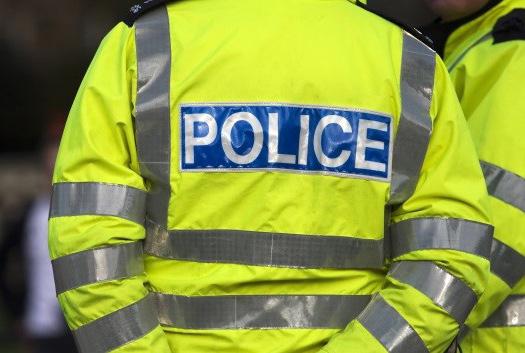
Why takes a Level 3 qualification in Public Services?
Are you interested in finding out more about the huge range of opportunities available in the public services, such as Police, Emergency Fire Services, Paramedic Services, Security, Prison Services, or the Armed Services? Do you want to develop a wide range of skills and knowledge that any employer will value? Or perhaps you already know that you want a career in this sector but you want to develop the skills and knowledge that recruiters will look for. If so, this course will be suitable for you.
Wha t is the course content?
To achieve the Level Three Certificate for Entry to the Uniformed Public Services, must complete four Mandatory Units:
• Prepare for a career in a chosen uniformed service
• Develop aspects of physical fitness for entry to the uniformed services
• Develop leadership skills
• Equality, diversity, and inclusion
And Optional units taken from a wide range of choice which might include:
• Mental and physical well-being
• Emergency planning and response in the uniformed services
• Understanding the impact of war and conflict on the uniformed services
• Sports coaching
• Outdoor and adventurous expeditions
• UK legal systems and uniformed services
• Crime Scene investigation
What sort of teaching and learning should I expect?
You will do lots of group work and practical activities throughout the course. You will also complete individual research. Visiting speakers from Public Services such as the Royal Navy, the Army, the Police Force, the Prison Service, and the Fire Service will be invited to speak to you and visits to Public Service organisations such as a prison may be arranged. Assessment is continuous. You will have a number of internally assessed coursework assignments to complete.
Wha t skills does public services develop?
The course allows you to develop your knowledge of the Public Services, including the roles and responsibilities within them and to develop the skills that working in Public Services requires, such as team-working, communication, taking responsibility for your own performance and behaviour.

www .congletonhigh.com Page 60

PUBLIC SERVICES
(NCFE Level 3 Certificate for Entry to the Uniformed Public Services)
What courses or work-based training can I combine with my Public Services course?
This course can be taken in conjunction with other vocational or academic courses at Congleton High School Sixth Form. The NCFE Level 3 Certificate in Public Services can be studied alongside Intermediate or Advanced Level courses. You MAY be able to extend this qualification beyond the Certificate so that you follow a course equivalent to 2 or 3 A levels. This could mean that you would only study Public Services, perhaps alongside a work experience placement. If this is of interest to you, please discuss it with Mrs Airey or Miss Boulton.
What careers or further studies could Public Services lead to?
The course provides a good foundation for either further Public Services related studies at college or university or as a qualification to support a career in: the Army; the Navy; the RAF; the Police Force; the Fire Service; the Ambulance Service; the Prison Service; the Civil Service; Social Work; Criminology; Personnel Management; Teaching; and the list goes on… It will also be useful as a general qualification to support an application to study something completely different. Indeed, many of our students have gone on to study courses such as Police Studies, Criminology, Sociology, Psychology, Nursing etc. at university.
Specific entry requirements for this course:
Ideally you will have a Grade 4 in English to study this course. However, all applications will be considered on an individual basis and, above all, you will need to have an interest in, and enthusiasm for, the modules chosen for this qualification.
For further information, please contact Mrs J Airey, Social Sciences Curriculum Team Leader.

www .congletonhigh.com Page 61

SOCIOLOGY
Examination Board: AQA
Why take Sociology?

Why does the crime rate always seem to be rising? Is the nuclear family the norm? Why do people join cults? Why do some people fail and others succeed in the education system? Why do so many people live in poverty while others live in the lap of luxury?
If you have ever asked yourself any of these questions, would like to debate such issues or are intrigued to know the answers, then Sociology will appeal to you. The subject will help you to understand the way that society influences the way in which we, as individuals, think, feel and behave, and get you to question commonly held assumptions.
What is the course content?
UNIT 1 – Education with Theory and Methods
Education - sociological theories of the role and function of education; relationships and processes; inequalities in education, relating to class, ethnicity and gender; and the significance of educational policies.
Sociological Methods in Context - sociological research methods in the context of the Sociology of Education.
Theory and Methods - different approaches to sociological research; factors to consider when designing, sources of data, e.g. questionnaires, interviews, etc.; theoretical, practical and ethical considerations; the extent to which Sociology can be regarded as scientific.
UNIT 2 – Topics in Sociology
Beliefs in Society - religious organisations, such as cults, sects, denominations, churches and New Age movements; sociological theories; the debate as to whether the influence of religion has declined; and participation in religious organisations by different social groups.
Culture and Identity - Concepts of culture including mass culture, subcultures and folk culture. The socialisation process including agents of socialisation such as family. Education. Media and Politics. The study of identity and the sense of self; the impact of globalisation on consumption, work and leisure activities.
UNIT 3 – Crime and Deviance with Theory and Methods
Crime and Deviance - the social construction of crime and deviance; the usefulness of crime statistics; sociological theories of crime and deviance; the treatment of different groups by law enforcement agencies; victims of crime; crime and the media; green crime; and punishment.
Theory and Methods – you will build on the work you did on this topic in Unit 1, developing knowledge, understanding and skills of analysis and evaluation.

www .congletonhigh.com Page 62

SOCIOLOGY
What sort of teaching, learning and assessment should I expect?
Teaching and Learning:
A range of teaching and learning styles are employed throughout the course including: co-operative learning structures, classroom discussion and debates; individual and group research; presentations; curriculum based trips e.g. to a Crown Court to experience a real trial; and note taking.
Assessment:
• Formal assessment includes:
- Paper 1 - a 2- hour paper on Education with Theory and Methods.
- Paper 2 - a 2- hour written exam on Topics in Sociology, specifically Families and Households and Beliefs in Society
- Paper 3 – a 2- hour written exam on Crime and Deviance with Theory and Methods
- Each paper is worth 80 marks and comprises a third of the overall grade.
• Informal assessment might include question and answer, meeting targets presentations, discussions, use of interactive whiteboards, critical thinking activities, flashcards and sequencing activities etc.
What skills does Sociology develop?
By the end of the course you will be able to question commonly held assumptions. You will have a better understanding of the social world around you and how this affects individual behaviour. You will develop key skills in organisation, essay writing, evaluation, analysis, discussions and doing presentations.
What other courses or work-based training can I combine with my Sociology course?
This course can be taken in conjunction with other academic or vocational courses at Congleton High School Sixth Form. Sociology fits with most subjects, particularly Psychology, Public Services, Health and Social Care, PE, Media Studies, History Religious Studies and English, in both its forms, as similar skills are required.
What careers or further studies could Sociology lead to?
The course provides a good foundation for either further Sociology related studies at college or university or as a general qualification to support a career in: Social Work; Health and Social Welfare; Speech Therapy; Police Force; Criminology; Journalism and the Media; Tourism and Leisure; Law; Trainee Management; Personnel Management; Marketing; Scientific and Social Research; Teaching; and the list goes on… It will also be useful as a general qualification to support an application to study something completely different.
For further information please contact Mrs J Airey, Social Sciences Curriculum Team Leader.

www .congletonhigh.com Page 63

SPANISH
Examination Board: AQA
Why take Spanish?
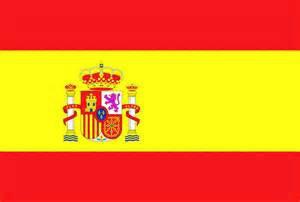
Why should we learn a foreign language? Is it because if we can communicate in English and Spanish we can talk to 2/3rds of the world population? Is it because 70% of companies conduct business with other countries? Is it because we need to understand better other cultures? Or is it because language learning increases our intellectual capacity? Would you like to travel or work in Spain or a Spanishspeaking country and be able to communicate really effectively in Spanish? Are you interested in Hispanic society or culture? Would you like to improve your understanding of Spanish and be able to speak it reasonably fluently?
If so, then why not study Spanish at A Level?
What is the course content?
The A Level Spanish course is an extension of the GCSE course. It continues to concentrate on the four skills of listening, reading, speaking and writing but also introduces you to a wider range of vocabulary, an in-depth study of the grammar and increased knowledge of culture and society. All of this will enable you to communicate confidently, clearly and effectively, to give your own ideas and opinions on many topics, including controversial political and contemporary issues. You will also be able to study literature and film of Hispanic countries and carry out your own research project on an aspect of your Spanish studies that interests you.
What sort of teaching, learning and assessment should I expect?
With increased access to Spanish via streaming services, the Internet and use of interactive software, students have more opportunities than ever before to work independently on the acquisition of language skills and many students enjoy this aspect of Sixth Form work. Students are also taught in class, developing discussion skills on current issues. Throughout, there is continual reference to and study of the grammar.
The course is assessed via exams at the end of the course.
What skills does Spanish develop?
The study of Spanish enables you to develop as a communicator. It will enable you to develop your overall intellectual capacity and your understanding of other cultures as well as giving you a greater understanding of your own language and culture.

www .congletonhigh.com Page 64

SPANISH
What other courses or work-based training can I combine with my Spanish course?
This course can be taken in conjunction with other academic or vocational courses at Congleton High School Sixth Form; French, Maths, Sciences, English, History, Art, IT, Geography and many, many more subjects complement Spanish. It is possible to study a modern language in combination with almost anything.
What careers or further studies could Spanish lead to?
As well as jobs or courses specialising in language work (translating, interpreting, teaching, linguistics), there is a wide range of jobs where a language can be a real asset, particularly those dealing with South America and Europe. Some of these jobs require school leavers and others require a degree either with or without a Spanish content. Possibilities include secretarial work, the Civil Service, travel and tourism, hotel and catering, journalism, fine art and antiques, law, insurance, marketing, sales, accountancy and distribution (import/export).
For further information, please contact Miss Adamson, Curriculum Team Leader, Modern Languages.

www .congletonhigh.com Page 65

SPORT
(BTEC Level 3 National Foundation Diploma in Sport)
Examination Board: Pearson
Why take a BTEC in Sport?
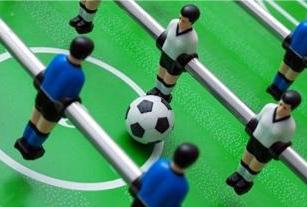
This course is suitable for students who may wish to enter employment or further education within the world of sport, specifically the sports coaching and leisure industry.
The BTEC NQF Level 3 Foundation Diploma is equivalent to 1.5 A Levels.
What is the course content?
You will study 7 Units for the Foundation Diploma
Unit 1 - Anatomy and Physiology Unit 2 - Fitness Training and Programming Unit 3 - Professional Development in the Sports Industry Unit 4 - Sports Leadership Unit 5 - Application of Fitness Testing Unit 8 - Sports Coaching Unit 10 - Sport Events Organisation
What sort of teaching, learning and assessment should I expect? You will be taught through discussion work, lectures, practical experiences and guest speakers. You will be expected to take on increasing responsibility for your own learning by developing presentations to your group and researching topics. An ability to organise your time well and adhere to deadlines is essential for this course.
Unit assessment is assessed through a variety of means such as written information, witness and observational statements and video/picture logs. This is graded as Pass, Merit, Distinction or Distinction*.
Units 1 and 2 are externally assessed.
What skills do a BTEC in Sport improve?
This course has been developed to provide a preparation for employment and/or to provide career development opportunities for those seeking employment in the sporting sector. You will also improve functional skills such as literacy, numeracy, using ICT, research, presentation and discussion skills.

www .congletonhigh.com Page 66

SPORT (BTEC Level 3 National Foundation Diploma in Sport)
What other courses or work-based training can I combine with my BTEC in Sport course?
This course can be taken in conjunction with other vocational or academic courses at Congleton High School Sixth Form. This can also be combined with representing the Sports Academy on a Wednesday afternoon in fixtures around the North West of the country.
What careers or further studies could BTEC in Sport lead to?
This course has been developed to meet the employment opportunities within the sport and leisure industry that include:
• Health/lifestyle services
• Coaching/teaching/training
• Outdoor Education institutions
• Professional sport and performance
• Health promotion
• Community development officers
• Sports development officers
Specific entry requirements for this course:
Students wishing to complete the BTEC Foundation Diploma should have achieved at least a Grade 5 at GCSE level Physical Education but with an average of 30 marks across the two exam papers or a minimum grade of a Level 2 Merit on the Unit 1 Cambridge National Sports Studies exam in Key Stage 4. A genuine interest in sport (preferably including participation in extra-curricular activities) is obviously expected! Applications will, however, be dealt with on an individual basis.
For further information please contact Mrs J Henderson, Curriculum Team Leader, Physical Education.

www .congletonhigh.com Page 67




































